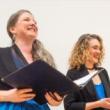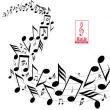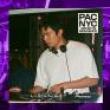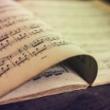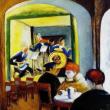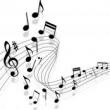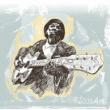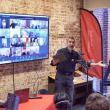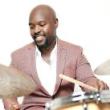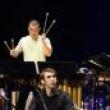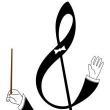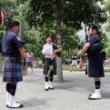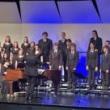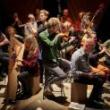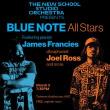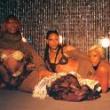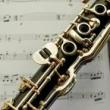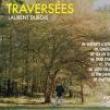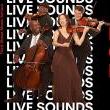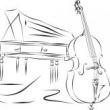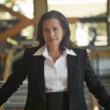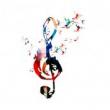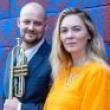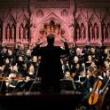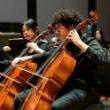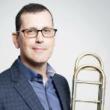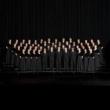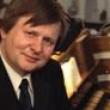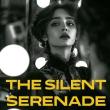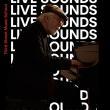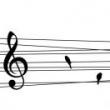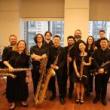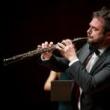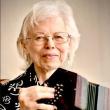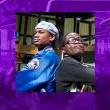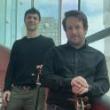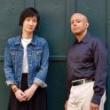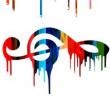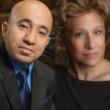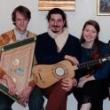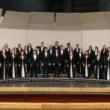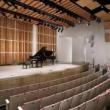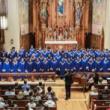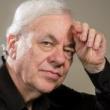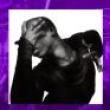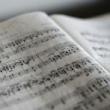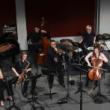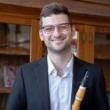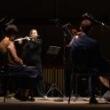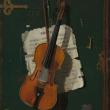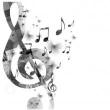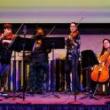free things to do in New York City
| < | February 2026 |
> | ||||
| Su | Mo | Tu | We | Th | Fr | Sa |
|---|---|---|---|---|---|---|
| 1 | 2 | 3 | 4 | 5 | 6 | 7 |
| 8 | 9 | 10 | 11 | 12 | 13 | 14 |
| 15 | 16 | 17 | 18 | 19 | 20 | 21 |
| 22 | 23 | 24 | 25 | 26 | 27 | 28 |
Free Events, Free Things to Do in New York City! Read More
226 free concerts take place New York City right now! In addition, Club Free Time members get free tickets to the concerts which are not free for general public, but are free for our members: when a producer wants that special buzz of the 'full house' at a concert - Club Free Time members are welcomed for their enthusiasm and sophistication! All they have to do is to login to www.clubfreetime.com and make a reservation.
As for the plethora of free concerts which take place in NYC year round, on weekdays and weekends, during lunch time, late afternoons and various evening hours: many people think that free concerts take place in NYC only during Summer, but nothing can be further from the truth.
Here are the numbers so you could see for yourself: about 1000 free concerts take place in NYC from mid-September to the end of May; and about 600 free concerts take place during the three Summer months (that 600 number excludes June's Make Music New York as on that single day more than 400 free concerts take place in NYC to celebrate Solstice).
As the number of free concerts per a summer month almost doubles the number of free concerts per month during other three seasons, you sure hear more about Summer free concerts.
In addition, Summer free concerts get more publicity, as such major popular concert series as New York Philharmoinic in the Parks, Metropolitan Opera Recital Series, Summer Stage and Celebrate Brooklyn all take place during summer months.
In addition, it's of course lots of fun to spend your lunch or your evening listening to the music you love and to picnic along, but your soul needs those nourishing sounds during other seasons as well. So keep in mind that in New York City you can attend a free concert practically any day of the year, except maybe such major Hollidays as July 4th, Thanksgiving and the Christmas Day.
So please keep in mind that whether it's a weekday or a weekend, a holiday or just a regular day or a weekday night, you can alwasy count on Club Free Time when you want to listen to your favorite music, free of carge.
226 free concerts take place New York City right now! In addition, Club Free Time members get free tickets to the concerts which are not free for general public, but are free for our members: when a producer wants that special buzz of the 'full house' at a concert - Club Free Time members are welcomed for their enthusiasm and sophistication! All they have to do is to login to www.clubfreetime.com and make a reservation.
As for the plethora of free concerts which take place in NYC year round, on weekdays and weekends, during lunch time, late afternoons and various evening hours: many people think that free concerts take place in NYC only during Summer, but nothing can be further from the truth.
Here are the numbers so you could see for yourself: about 1000 free concerts take place in NYC from mid-September to the end of May; and about 600 free concerts take place during the three Summer months (that 600 number excludes June's Make Music New York as on that single day more than 400 free concerts take place in NYC to celebrate Solstice).
As the number of free concerts per a summer month almost doubles the number of free concerts per month during other three seasons, you sure hear more about Summer free concerts.
In addition, Summer free concerts get more publicity, as such major popular concert series as New York Philharmoinic in the Parks, Metropolitan Opera Recital Series, Summer Stage and Celebrate Brooklyn all take place during summer months.
In addition, it's of course lots of fun to spend your lunch or your evening listening to the music you love and to picnic along, but your soul needs those nourishing sounds during other seasons as well. So keep in mind that in New York City you can attend a free concert practically any day of the year, except maybe such major Hollidays as July 4th, Thanksgiving and the Christmas Day.
So please keep in mind that whether it's a weekday or a weekend, a holiday or just a regular day or a weekday night, you can alwasy count on Club Free Time when you want to listen to your favorite music, free of carge.
Join the Club!
The quality and quantity of
free events,
free things to do
that happen in New York City
every day of the year
is truly amazing.
So don't miss the opportunities
that only New York provides:
stop wondering what to do;
start taking advantage of
free events to go to,
free things to do in NYC
today!
The quality and quantity of
free events,
free things to do
that happen in New York City
every day of the year
is truly amazing.
So don't miss the opportunities
that only New York provides:
stop wondering what to do;
start taking advantage of
free events to go to,
free things to do in NYC
today!
226 Free Concerts in New York City, NYC Thu, 02/26/2026 - and on...
In New York City (NYC) you don't have to spend a dime to listen to good music, as free concerts abound in New York whether it's tonight, tomorrow, this week or this weekend! The variety is really astonishing: classical, jazz, pop, rock, opera, soul, etc. Just take a look at the free concert schedule below.
Master Class | Chicago Symphony Orchestra Musician Teaches Great Orchestral Performance
Bassoonist Keith Buncke, Principal Bassoon of the Chicago Symphony Orchestra, imparts skills and techniques for orchestral performance mastery.
New York City, NY; NYC
Join the Club!
Thu, Feb 26
10:00 am
Free
10:00 am
Free
Classical Music | Afternoon Bach
Take a momentary respite from a busy day to enjoy a selection of organ works by Johann Sebastian Bach in an intimate venue.
New York City, NY; NYC
Join the Club!
Thu, Feb 26
12:20 pm
Free
12:20 pm
Free
Master Class | Los Angeles Philharmonic Violist Teaches Great Orchestral Performance
Teng Li, former Principal Viola of the Los Angeles Philharmonic, imparts skills and techniques for orchestral performance mastery.
New York City, NY; NYC
Join the Club!
Thu, Feb 26
1:00 pm
Free
1:00 pm
Free
Classical Music | Baroque Italian Works Exploring Love (In Person AND Online!)
Lazzuli Baroque (Rocky Duval, mezzo-soprano, Luce Burrell, lute, Keiran Campbell, violoncello) performs their program, Viaggio d'Amore, which features music from early 17th-century Italy. The program explores the tenuous nature of love and takes the audience through the stages of love: longing, infatuation, stability, fights, breakups, and even a happy ending.
New York City, NY; NYC
Join the Club!
Thu, Feb 26
1:15 pm
Free
1:15 pm
Free
Master Class | Explore the Ins & Outs of Great Orchestral Performance
Flutist Herman van Kogelenberg--Principal Flute of the Munich Philharmonic--imparts techniques and skills for orchstral performance mastery.
New York City, NY; NYC
Join the Club!
Thu, Feb 26
2:30 pm
Free
2:30 pm
Free
Master Class | Learn the Ins & Outs of Great Viola Performance
Teng Li--former Principal Viola of the Chicago Symphony Orchestra--imparts skills and techniques for violin mastery.
New York City, NY; NYC
Join the Club!
Thu, Feb 26
4:00 pm
Free
4:00 pm
Free
Classical Music | Art Songs & Arias by Grieg, Debussy, Bellini, & More (In Person AND Online!)
Shiyu Zhuo, Soprano. Program: Edvard Grieg (1843-1907) Sechs Lieder, Op. 48 Claude Debussy (1862-1918) Fêtes galantes I Vincenzo Bellini (1801-1835) Eccomi in lieta vesta from I Capuleti ed i Montecchi Lingbo Ma Heart Sutra Mingbo Ma Prelude to Water Melody Eric Whitacre (1970-) Goodnight Moon
New York City, NY; NYC
Join the Club!
Thu, Feb 26
5:30 pm
Free
5:30 pm
Free
Classical Music | Flute Works by Bartok & More (In Person AND Online!)
Ellie Eunbi Baek, flute. Program: Jean-Marie Leclair (1697-1764) (arr. Hugo Ruf) Flute Sonata in E Minor, Op. 2, No. 1 Sigfrid Karg-Elert (1877-1933) Sinfonische Kanzone Emre Şener (2001-) Petrichor Lowell Liebermann (1961-) Sonata for Flute and Piano, Op. 23 Béla Bartók (1881-1945) (arr. Arthur Levering) Romanian Folk Dances for Flute and Guitar Philippe Gaubert (1879-1941) Flute Sonata No. 3
New York City, NY; NYC
Join the Club!
Thu, Feb 26
5:30 pm
Free
5:30 pm
Free
Classical Music | Works by Dvorak and More for Violin & Piano
Yixuan Jiang, violin, and Taketo Kataoka, piano. Program: James Macmillan (1959-) After the Tryst Antonin Dvořák (1841-1904) Violin Concerto in A Minor, Op. 53
New York City, NY; NYC
Join the Club!
Thu, Feb 26
5:30 pm
Free
5:30 pm
Free
Master Class | 17x Grammy-Nominee Imparts Techniques & Skills for Great Jazz Performance
Explore the art of the ballad with Fred Hersch, "the most arrestingly innovative pianist in jazz over the last decade" (Vanity Fair) and "a living legend" (The New Yorker). A member of jazz's piano pantheon, Fred Hersch has been an influential creative force over more than three decades as an improviser, composer, educator, bandleader, collaborator, and recording artist. A seventeen-time Grammy nominee, Hersch has garnered jazz's most prestigious awards.
New York City, NY; NYC
Join the Club!
Thu, Feb 26
6:00 pm
Free
6:00 pm
Free
Classical Music | Diverse String Works (In Person AND Online!)
Trio Fadolín is a new ensemble with a unique sonority — featuring Sabina Torosjan on violin, Valeriya Sholokhova on cello, and Ljova, performing on the fadolín — a new instrument that encompasses the range of the violin, viola, and most of the cello, finding its footing in an acoustic chamber music setting for the first time. Their repertoire includes works by Ukrainian composers Vasyl Barvinsky, Mykola Kolessa, and Miroslav Skoryk, Spanish-American composer Andrea Casarrubios, Estonian-American composer Lembit Beecher, folk music from Armenia, Denmark, Romania, Sweden and Uzbekistan, in addition to original works by our fadolínist, Ljova.
New York City, NY; NYC
Join the Club!
Thu, Feb 26
6:00 pm
Free
6:00 pm
Free
Concert | Groove-Forward Evening with DJ Peter X
Brooklyn-based DJ and cofounder of Siduri Records, Peter X, takes the stage. With a sound that deftly blends together genres ranging from disco to minimal, his sets are precise and playful, working off the crowd's energy and keeping the vibes high. Don't miss Peter X's groove-forward evening enables genre lines blur and the party never stops.
New York City, NY; NYC
Join the Club!
Thu, Feb 26
6:00 pm
Free
6:00 pm
Free
Concert | Vienna Philharmonic Musicians Perform Chamber Works
A joyful and genre-defying concert as Vienna Philharmonic "brothers" Matthias Schorn, clarinet, and Christoph Gigler, tuba and harmonica, invite audiences into their extended musical family. This event is a playful journey through contemporary music, folk traditions, and singer-songwriter sounds, where stylistic boundaries dissolve and musical surprises are guaranteed. From virtuosic chamber moments to spontaneous cross-genre encounters, the program brings together an exceptional group of musicians who move effortlessly between classical excellence and popular expression. Alongside Schorn and Gigler, the evening features the Schick Sisters (vocal harmony), Valerie Schatz (double bass), Josef Reif (horn), Daniel Schnyder (saxophone), and Ewald Pfleger (guitar), creating a vibrant, family-style celebration of musical curiosity and collaboration.
New York City, NY; NYC
Join the Club!
Thu, Feb 26
6:30 pm
Free
6:30 pm
Free
Classical Music | Italian Jewish Baroque Works & More
This concert presents selections from Salamone Rossi's compositions--vocal music in Italian and Hebrew as well as instrumental works from the 1620s--together with world-premiere performances of three songs by Israeli composer Oded Zehavi set to poetry by Leone Modena. This event features The Raritan Players (Ian Pomerantz, Bass-Baritone, Dongmyung Ahn, violin, Gersh Chervinsky, violin, Charles Weaver, theorbo, Rebecca Cypess, harpsichord).
New York City, NY; NYC
Join the Club!
Thu, Feb 26
7:00 pm
Free
7:00 pm
Free
Concert | Urban Ballads by New Yorkers
Experience a monthly showcase featuring original songwriters from New York City. Curated and hosted by renowned Irish songwriter Niall Connolly, this series has been a warm space for both emerging and established artists. Past performers include Lana Del Rey, Anais Mitchell, Lucius, Mundy, Mick Flannery, and Susan O'Neill. This month's performance features folk singer Kevin Connolly.
New York City, NY; NYC
Join the Club!
Thu, Feb 26
7:00 pm
Free
7:00 pm
Free
Concert | Afrofuturist Sounds with Groundbreaking Voices: Nona Hendryx, Black Sound Salon, & More
Experience Convergence: A Transformative Evening of Sound, Story, and Sistahood, an unprecedented gathering featuring the iconic Afrofuturist musician and technological innovator Nona Hendryx, along with Moor Mother, Black Sound Salon, and other artists to be announced. These groundbreaking voices will untangle the creative intersections of mechanization and memory, ancestral knowledge and as-yet-uncharted futurity, inviting audiences into an intimate yet expansive conversation about artistic lineages, the politics of sound, and the ways experimental practice can hold space for transformation and healing. Convergence, presented in collaboration with the Black Sound Salon, is more than just a confluence of great minds. It's a ritual where past and future collapse into a fresh present--a can't-miss event that transcends traditional boundaries between panel discussion and performance.
New York City, NY; NYC
Join the Club!
Thu, Feb 26
7:30 pm
Free
7:30 pm
Free
Classical Music | Operatic Works by Barber & More (In Person AND Online!)
Manhattan School of Music Symphony Orchestra and Manhattan School of Music Opera Theatre perform operatic pieces by famous composers from the Romantic and Modern musical periods. Program: Lili Boulanger (1893-1918) D'un matin de printemps Samuel Barber (1910-1981) Symphony No. 1 in One Movement, Op. 9 Georges Bizet (1838-1875) Selections from Carmen
New York City, NY; NYC
Join the Club!
Thu, Feb 26
7:30 pm
Free
7:30 pm
Free
Classical Music | Cello Works by J.S. Bach, Beethoven, & Robert Schumann (In Person AND Online!)
Anna Lee, cello. Program: J.S. Bach (1685-1750) Cello Suite No. 4 in E-flat Major, BWV 1010 Ludwig Van Beethoven (1770-1827) Cello Sonata No. 5 in D Major, Op. 102 No. 2 Robert Schumann (1810-1856) Cello Concerto in A Minor, Op. 129
New York City, NY; NYC
Join the Club!
Thu, Feb 26
8:00 pm
Free
8:00 pm
Free
Classical Music | Viola Works by J.S. Bach, Brahms & More (In Person AND Online!)
Amelia Krinke, viola. Program: J.S. Bach (1685-1750) Violin Sonata No. 3 in C Major, BWV 1005 Johann Brahms (1833-1897) Viola Sonata No. 1 in F Minor, Op. 120 No. 1 Isaac Albéniz (1860-1909) (arr. Brian Krinke) Iberia, Book 1
New York City, NY; NYC
Join the Club!
Thu, Feb 26
8:00 pm
Free
8:00 pm
Free
Classical Music | Afternoon Bach
Take a momentary respite from a busy day to enjoy a selection of organ works by Johann Sebastian Bach in an intimate venue.
New York City, NY; NYC
Join the Club!
Fri, Feb 27
12:20 pm
Free
12:20 pm
Free
Jazz | Afternoon Jam Sesh (Play Music or Just Listen)
This jam session is open to all musicians. Come and play or just listen to some jazzy tunes.
New York City, NY; NYC
Join the Club!
Fri, Feb 27
2:00 pm
Free
2:00 pm
Free
Classical Music | Piano Works by Schubert, J.S. Bach, & Scriabin (In Person AND Online!)
Brayden Liu, piano. Program: Franz Schubert (1797-1828) Piano Sonata in A Major, D.959 J.S. Bach (1685-1750) Prelude And Fugue No. 4 In C-sharp Minor, BWV 873 Alexander Scriabin (1872-1915) Fantasie in B Minor, Op. 28
New York City, NY; NYC
Join the Club!
Fri, Feb 27
3:00 pm
Free
3:00 pm
Free
Classical Music | Viola Works by J.S. Bach, Hindemith, & More (In Person AND Online!)
Lily Jonsson, viola. Program: George Enescu (1881-1955) Concertstück for Viola and Piano J.S. Bach (1685-1750) (arr. for Viola in G Major) Cello Suite No. 6, BWV 1012 Paul Hindemith (1895-1963) Sonata for Viola and Piano
New York City, NY; NYC
Join the Club!
Fri, Feb 27
5:30 pm
Free
5:30 pm
Free
Classical Music | Violin Works by Mozart, Robert Schumann, & More (In Person AND Online!)
Chae Lim Yoon, violin. Program: Wolfgang Amadeus Mozart (1756-1791) Violin Sonata in C Major, K. 296 Ernest Chausson (1855-1899) Poème, Op. 25 Robert Schumann (1810-1856) Sonata for Violin and Piano No. 2 in D Minor, Op. 121
New York City, NY; NYC
Join the Club!
Fri, Feb 27
5:30 pm
Free
5:30 pm
Free
Concert | Multi-Genre Musician Trio Bring Groove to the Stage
An accountant, a spinal surgeon, and an actor walk onto the stage...off from their day jobs and armed with their instruments, they have been separately searching for that elusive figure, Mister Groove. All musicians have heard of him, few have actually seen him. For Mister Groove only shows himself when the music is at its most head nodding, finger snapping, stank-face-making peak. Each of our three protagonists have been on this solo quest for some years but have now decided to join forces in their search for Mister Groove, bonding over their shared love of such artists like Miles Davis, John Coltrane, D'Angelo, Biggie Smalls, OutKast and the Folk Music of Planet Earth. The Mister Groove Trio is made up of Brooklyn based Actor/Saxophonist Eric Berryman, Queens based Spinal Surgeon/Pianist Dante Leven, and Brooklyn based Accountant/Drummer Howard Karp.
New York City, NY; NYC
Join the Club!
Fri, Feb 27
6:00 pm
Free
6:00 pm
Free
Classical Music | Sonatas by Fauré & Poulenc for Cello and Piano
Yi Qun Xu, cello, and Jessica Xylina Osborne, piano. Program: Gabriel Fauré (1845-1924) Sonata for Cello and Piano No. 2 in G Minor, Op. 117 Francis Poulenc (1899-1963) Sonata for Cello and Piano, FP 143
New York City, NY; NYC
Join the Club!
Fri, Feb 27
6:00 pm
Free
6:00 pm
Free
Classical Music | Violin Works by J.S. Bach, Ysaÿe, & Prokofiev (In Person AND Online!)
Violinist Emma Meinrenken presents a playfully virtuosic program. The program includes solo violin works by J.S. Bach, E. Ysaÿe, and B. Webster, as well as the Second Violin Sonata of S. Prokofiev.
New York City, NY; NYC
Join the Club!
Fri, Feb 27
6:00 pm
Free
6:00 pm
Free
Concert | Brazilian & Venezuelan Classics for Marimba/Vibraphone and Guitar
Bloomingdale School of Music faculty members Juan Diego Villalobos, marimba and vibraphone, and Edu Gutterres, guitar, present a concert of Brazilian and Venezuelan classics, showcasing the richness of each nationality and the sonic landscapes the music evokes. Program: Edu Gutterres (1997-) The Brazilian Suite Juan Diego Villalobos The Venezuelan Suite
New York City, NY; NYC
Join the Club!
Fri, Feb 27
7:00 pm
Free
7:00 pm
Free
Concert | CANCELLED Singer-Songwriter Sings Songs of Resiliance & Self-Discovery
Lily Librach brings her empowering musical tale, "I Belong Here," a one-woman story of resilience and self-discovery, from her dreams as a little girl to the present and beyond.
New York City, NY; NYC
Join the Club!
Fri, Feb 27
7:00 pm
Free
7:00 pm
Free
Fri, Feb 27
7:00 pm
Regular: $35
Member: $0
7:00 pm
Regular: $35
Member: $0
Join the Club!
Classical Music | Double Bass Works by J.S. Bach, Brahms, Bottesini, & More(In Person AND Online!)
Lucas Caceres, double bass. Program: J.S. Bach (1685-1750) Cello Suite No. 5, BWV 1011 Alfred Schnittke (1934-1998) Hymn II for Cello and Double Bass Johann Brahms (1833-1897) Cello Sonata No. 1 in E Minor, Op. 38 Giovanni Bottesini (1821-1889) Fantasia on 'La Sonnambula'
New York City, NY; NYC
Join the Club!
Fri, Feb 27
8:00 pm
Free
8:00 pm
Free
Classical Music | Violin Works by Ysaÿe, Dvořák, & More (In Person AND Online!)
Christina Jihee Nam, violin. Program: Jessie Montgomery (1981-) Rhapsody No. 1 for Solo Violin Eugène Ysaÿe (1858-1931) Sonata No. 5 for Violin in G Major, Op. 27 Antonin Dvořák (1841-1904) (arr. Fritz Kreisler (1875-1862)) Slavonic Fantasy Richard Strauss (1864-1949) Violin Sonata in E-flat Major, Op. 18
New York City, NY; NYC
Join the Club!
Fri, Feb 27
8:00 pm
Free
8:00 pm
Free
Fri, Feb 27
9:30 pm
Regular: $55
Member: $0
9:30 pm
Regular: $55
Member: $0
Join the Club!
Jazz | Afternoon Jam Sesh (Play Music or Just Listen)
This jam session is open to all musicians. Come and play or just listen to some jazzy tunes.
New York City, NY; NYC
Join the Club!
Sat, Feb 28
2:00 pm
Free
2:00 pm
Free
Concert | Guitar Music Festival
Enjoy this annual Guitar Festival! Masterclass and student/faculty/guest artist concert. 2:45pm Masterclass 4:30pm Student Concert 6:00pm Faculty & Guest Artist Concert
New York City, NY; NYC
Join the Club!
Sat, Feb 28
2:45 pm
Free
2:45 pm
Free
Classical Music | Serene Organ Meditations in Intimate Venue
Enjoy a program of hymns, anthems, and voluntaries for the organ.
New York City, NY; NYC
Join the Club!
Sat, Feb 28
4:00 pm
Free
4:00 pm
Free
Classical Music | A Chamber Concert Honoring Black American Composers
This intimate chamber concert celebrates the resilience and creative legacy of Black American composers. The evening brings together live music and spoken word, with writer and poet Angela Decker performing alongside a flute and string trio. Through sound and text, the program reflects on endurance, memory, and presence.
New York City, NY; NYC
Join the Club!
Sat, Feb 28
6:00 pm
Free
6:00 pm
Free
Concert | Carnegie Hall-Featured Musicians Perform Cross-Cultural Violin Dialogue (Jazz, Folk, & Improv)
Arun Ramamurthy and Trina Basu bring a dazzling, cross-cultural violin dialogue to the stage. Rooted in South Indian Carnatic music and shaped by jazz, folk, and improvisation, their performances blur genre lines with virtuosity and heart. Ramamurthy is a Brooklyn-based violinist, composer, and co-founder of Brooklyn Raga Massive, known for projects like the Arun Ramamurthy Trio and expansive collaborations from Carnegie Hall to the Kennedy Center. Basu is a New York City-based violinist, improviser, and music therapist whose "globe-spanning" sound has been praised by The New Yorker, and whose work carries a deep belief in music as a healing force. Together, they create an immersive set that moves from raga to improvised flights, connecting tradition and innovation in real time.
New York City, NY; NYC
Join the Club!
Sat, Feb 28
7:00 pm
Free
7:00 pm
Free
Concert | Contemporary Opera Compositions with American Modern Opera Company
The creator-driven American Modern Opera Company performs an Up Close series of one-night-only contemporary compositions. The opening program presents the premieres of The Inner Core, from AMOC* co-founder and MacArthur Fellow Matthew Aucoin, and Camino Songs, by composer-instrumentalist-poet Doug Balliett. Aucoin's Inner Core song cycle features the composer on piano, accompanied by acclaimed baritone vocalist William Socolof (Boston Symphony Orchestra, New York Philharmonic). Together, the duo limn the arc of an imagined romantic relationship from adolescence through the couple's parting in early adulthood. Balliett's Camino Songs was conceived while on pilgrimage to the Galician municipality of Santiago de Compostela. Supported with projections of the composer's original photography, Camino Songs is a journey of self-reflection, local Spanish lore, and deep devotion. There are two ways to access this event: 1. General Admission, first-come first-served. Just show up! 2. Fast Track opening the Monday before the event at noon.
New York City, NY; NYC
Join the Club!
Sat, Feb 28
7:30 pm
Free
7:30 pm
Free
Sat, Feb 28
8:00 pm
Regular: $50.00
Member: $0
8:00 pm
Regular: $50.00
Member: $0
Join the Club!
Sat, Feb 28
8:30 pm
Regular: $40
Member: $0
8:30 pm
Regular: $40
Member: $0
Join the Club!
Sat, Feb 28
10:00 pm
Regular: $20
Member: $0
10:00 pm
Regular: $20
Member: $0
Join the Club!
Sun, Mar 1
12:30 pm
Regular: $30
Member: $0
12:30 pm
Regular: $30
Member: $0
Join the Club!
Concert | Sea Chanteys: Singing Maritime Traditions (In Personn AND Online!)
Celebrate centuries of seafaring music in this hybrid monthly gathering. Join a joyful community singing traditional maritime work songs and ballads, whether you participate live or listen online. Each session invites everyone to sing along, lead a tune, or simply soak in the sound, keeping the rich traditions of sea chanteys alive in a warm and welcoming environment.
New York City, NY; NYC
Join the Club!
Sun, Mar 1
2:00 pm
Free
2:00 pm
Free
Classical Music | Serene Organ Meditations in Intimate Venue (In Person AND Online!)
Enjoy a program of hymns, anthems, and voluntaries for the organ.
New York City, NY; NYC
Join the Club!
Sun, Mar 1
4:00 pm
Free
4:00 pm
Free
Classical Music | Celebrating Vienna's Center for Banned Music: Works by Mahler & More (+ Discussion & Reception)
This commemorative program highlights works by Gustav Mahler, Erwin Schulhoff, and Walter Bricht, underscoring Austria's responsibility to confront its history while safeguarding a vital part of its musical and cultural heritage. The evening will be moderated by Gerold Gruber, founder of Exilarte and head of the Exilarte Center at the mdw - University of Music and Performing Arts Vienna, and will be followed by a reception.
New York City, NY; NYC
Join the Club!
Sun, Mar 1
7:00 pm
Free
7:00 pm
Free
Concert | Live Acoustic Evening
Enjoy an evening of acoustic music with Plane Station.
New York City, NY; NYC
Join the Club!
Sun, Mar 1
8:00 pm
Free
8:00 pm
Free
Sun, Mar 1
8:00 pm
Regular: $40
Member: $0
8:00 pm
Regular: $40
Member: $0
Join the Club!
Sun, Mar 1
9:30 pm
Regular: $35
Member: $0
9:30 pm
Regular: $35
Member: $0
Join the Club!
Jazz | Multi-Grammy Award-winning Drummer and His Band
Led by Ulysses Owens Jr., a multi-Grammy Award-winning drummer, producer, educator, and author, the Generation Y band champions emerging talent from the top music conservatories in New York City and beyond. Drawing inspiration from Ulysses' mentors and influences, such as Mulgrew Miller, Roy Hargrove, George Cables, and the legendary Art Blakey, the ensemble presents a powerful, contemporary reimagining of the Jazz Messengers model. Many of the musicians also perform in Ulysses Owens Jr.'s acclaimed big band, creating a dynamic, intergenerational musical force. Enjoyan evening of electrifying performances, bold artistry, and the camaraderie of jazz.
New York City, NY; NYC
Join the Club!
Mon, Mar 2
6:00 pm
Free
6:00 pm
Free
Mon, Mar 2
7:30 pm
Regular: $40
Member: $0
7:30 pm
Regular: $40
Member: $0
Join the Club!
Classical Music | Solo & Chamber Works for Percussion
Enjoy an evening of solo and chamber works for percussion, highlighting compositions that have shaped and continue to define percussion repertoire. Spanning a range of styles, the program celebrates the virtuosity, imagination, and impact of percussion.
New York City, NY; NYC
Join the Club!
Mon, Mar 2
8:00 pm
Free
8:00 pm
Free
Classical Music | String Quartets in C from Haydn to Britten
The Grand Prize winner of the 2025 Fischoff Chamber Music Competition brings a program centered on C that pairs elegance with intensity. The evening opens with one of Haydn's spirited "Prussian" quartets, followed by Benjamin Britten's powerful Second String Quartet, composed as a modern homage to Henry Purcell. Together, these works trace the expressive range of the string quartet from Classical wit to 20th-century depth through the lens of a standout emerging ensemble. Note: Tickets are released two weeks in advance.
New York City, NY; NYC
Join the Club!
Tue, Mar 3
12:00 pm
Free
12:00 pm
Free
Classical Music | Afternoon Bach
Take a momentary respite from a busy day to enjoy a selection of organ works by Johann Sebastian Bach in an intimate venue.
New York City, NY; NYC
Join the Club!
Tue, Mar 3
12:20 pm
Free
12:20 pm
Free
Classical Music | Harp Works by J.S. Bach, Ravel, Respighi, & More
Eve Lung, harp. Program: J.S. Bach (1685-1750)/Henriette Renié (1875-1956) Pièce en Sol (Praeambulum from Partita No. 5, BWV 829) Ottorino Respighi (1879-1936)/Marcel Grandjany (1891-1975) Siciliana from Ancient Airs and Dances Carlos Salzedo (1885-1961) Variations on a Theme in the Ancient Style Henriette Renié (1875-1956) Contemplation Maurice Ravel (1875-1937)/Marcel Grandjany (1891-1975) Menuet from Le Tombeau de Couperin Eduardo López-Chavarri (1871-1970)/Marcel Grandjany (1891-1975) El Viejo Castilla Moro Manuel de Falla (1876-1946)/Marcel Grandjany (1891-1975) Spanish Dance No. 1
New York City, NY; NYC
Join the Club!
Tue, Mar 3
5:30 pm
Free
5:30 pm
Free
Classical Music | Diverse Ensemble Works by Women Composers (In Person AND Online!)
UNBOUND: Music by Women Composers Since the Age of Enlightenment, performed by New York-based trio Zephyra, is a program of works for flute, voice, and piano by women composers, several of whom faced significant barriers in having their compositions performed and being recognized as serious composers. This was especially so with those women composers active during or shortly after the Age of Enlightenment. During this period and into the 19th and early 20th centuries, societal norms and institutional restrictions often limited women's access to formal musical training, performance opportunities, and publication of their works. The program includes works by Anna Bon di Venezia, Isabella Colbran, Pauline Viardot, Cecile Chaminade, Marion Bauer, Florence Price, Margaret Bonds, and Margarita Zelenaia. Zephyra is comprised of mezzo-soprano Anna Tonna, flautist Laura Falzon, and pianist Olga Gurevich. The trio is dedicated to presenting thematic and adventurous programming exploring repertoire from historical as well as contemporary composers, drawing from Western and non-Western traditions alike.
New York City, NY; NYC
Join the Club!
Tue, Mar 3
6:00 pm
Free
6:00 pm
Free
Concert | Immersive Piano Performance of Morton Feldman's Triadic Memories
Experience a 75-minute solo piano performance of Morton Feldman's Triadic Memories (1981), a meditation on slowly evolving repetition, subtle harmonic shifts, and minute variations. The performer draws on decades of studying and performing Feldman's work, providing rare depth and insight into this monumental piece. Enjoy a complimentary drink during this hour-long weeknight concert, then mingle with the musician and other attendees afterward. Note: Doors open at 5:30 PM, music at 6 PM
New York City, NY; NYC
Join the Club!
Tue, Mar 3
6:00 pm
Free
6:00 pm
Free
Tue, Mar 3
7:00 pm
Regular: $40
Member: $0
7:00 pm
Regular: $40
Member: $0
Join the Club!
Classical Music | Afternoon Bach
Take a momentary respite from a busy day to enjoy a selection of organ works by Johann Sebastian Bach in an intimate venue.
New York City, NY; NYC
Join the Club!
Wed, Mar 4
12:20 pm
Free
12:20 pm
Free
Concert | Weekly Outdoor Bagpipe Tribute: Honoring 9/11 Lives and Legacies
A moving weekly bagpipe tribute honors those who lost their lives on 9/11, as well as individuals affected by the lasting health impacts of that day. The tribute begins with a performance near a symbolic column preserved from the site, followed by a second performance in a nearby outdoor space.
New York City, NY; NYC
Join the Club!
Wed, Mar 4
1:00 pm
Free
1:00 pm
Free
Classical Music | Choral Works Performed in a Beautiful Cathedral
West High School Singers and Chorale, directed by Mitchell Moore, performs a series of pieces by composers from various musical periods. Program: Michael John Trotta (1978-) Jubilate Deo Karen Marrolli Until Love is Spoken Ben Allaway (1958-) My Soul is a River Felice Anerio (c. 1560-1614) Christus factus est Andrea Ramsey (1977-) Stomp on the Fire Amilia Ouverson A Departing Blessing West High School Alma Mater
New York City, NY; NYC
Join the Club!
Wed, Mar 4
1:45 pm
Free
1:45 pm
Free
Classical Music | Acclaimed Harpsichordist Lillian Gordis Shares Her New J.S. Bach Album (+ Live Performance)
Enjoy the album release tour of the Franco-American harpsichordist Lillian Gordis. Following her critically acclaimed first Bach album, Gordis continues her solo recording journey into the heart of Johann Sebastian Bach’s keyboard works, now for the French label Artalinna. For the New York stop of her album release tour, Lillian Gordis will perform a mini-recital highlighting the Partita 6 – a 40-minute deeply immersive work that has accompanied the musician since childhood and is the centerpiece of the new recording – followed by a discussion with the artist, moderated by renowned harpist, keyboardist, and writer Parker Ramsay. A CD signing will conclude the event.
New York City, NY; NYC
Join the Club!
Wed, Mar 4
6:00 pm
Free
6:00 pm
Free
Classical Music | Ensemble Contrechamps Performs Contemporary Works
Ensemble Contrechamps gives the U.S. premieres of works by composers from Canada and Colombia. Program: Daniel Zea Autorretrato extendido Nicole Lizée New work
New York City, NY; NYC
Join the Club!
Wed, Mar 4
7:00 pm
Free
7:00 pm
Free
Master Class | Learn the Ins & Outs of Jazz Vibraphone Performance
Patricia Brennan, jazz vibraphone, leads a class in vibraphone mastery via distance learning.
New York City, NY; NYC
Join the Club!
Thu, Mar 5
9:30 am
Free
9:30 am
Free
Classical Music | Afternoon Bach
Take a momentary respite from a busy day to enjoy a selection of organ works by Johann Sebastian Bach in an intimate venue.
New York City, NY; NYC
Join the Club!
Thu, Mar 5
12:20 pm
Free
12:20 pm
Free
Classical Music | Piano Works by Brahms, Rachmaninoff, & More (In Person AND Online!)
The Hermitage Piano Trio presents Gems for Piano Trio. Program: Sergei Rachmaninoff (1873-1943) Trio No. 1 in G minor "Elegiaque" Mariano Perello (1886 - 1960) Tres Impresiones Johann Brahms (1833-1897) Piano Trio No. 3 in C Minor, Op. 101
New York City, NY; NYC
Join the Club!
Thu, Mar 5
1:00 pm
Free
1:00 pm
Free
Classical Music | Period Music Ensemble Performs Baroque Works (In Person AND Online!)
Period instrument ensemble A Golden Wire (Thomas Fields, viol, Lucine Musaelian, voice and viol, Arnie Tanimoto, viol, and Parker Ramsay, harpsichord and harp) performs a program including selections from Christopher Simpson’s The Months and Thomas Simpson’s Taffel Consort. The ensemble will give audiences a glimpse of the ways in which time, the seasons, and life’s transitions were thought about in 17th-century England.
New York City, NY; NYC
Join the Club!
Thu, Mar 5
1:15 pm
Free
1:15 pm
Free
Concert | "Consistently Invigorating" Singer-Songwriter Natalie Tenenbaum
Composer, pianist, and singer-songwriter Natalie Tenenbaum starts a special five-week residency. Each week, Tenenbaum will guide audiences on a sonic journey, traveling fluidly between classical, jazz, pop, and experimental soundscapes. Natalie Tenenbaum has premiered works worldwide, collaborated with artists including Lang Lang, Pentatonix, and David Byrne, and created arrangements for Broadway's Mean Girls. Her recent albums--Duos/Solos and Standard Repertoire Vol. 1--reimagine everything from Bach to Stravinsky through her post-classical lens. Tenenbaum's performances have been praised by The New York Times as "sparkling... consistently invigorating," and her boundary-crossing approach is sure to make each evening of this residency a thrilling opportunity to hear familiar music in a wholly new way.
New York City, NY; NYC
Join the Club!
Thu, Mar 5
6:00 pm
Free
6:00 pm
Free
Classical Music | Chinese and Western Baroque Works for Traditional & Period Instruments (In Person AND Online!)
This program bridges the music and philosophies of traditional Chinese instruments (guqin, guzheng, dizi, erhu, yangqin) and European baroque period instruments (harpsichord, clavichord, theorbo, strings) in a cross-cultural dialogue of sounds and repertoire. The repertoire features a new composition using all these instruments by composer Marco Jimenez, accompanied by works including an adaptation of Mozart's K. 511 Rondo by Yiheng Yang for a mix of Chinese and Western baroque instruments. Also included is Wang Amao's Duo for Guqin and Clavichord (2024).
New York City, NY; NYC
Join the Club!
Thu, Mar 5
6:00 pm
Free
6:00 pm
Free
Jazz | Blue Note All-Stars & Guests!
Blue Note All-Stars, featuring special guests, pianist James Francies, and vibraphonist Joel Ross, performs.
New York City, NY; NYC
Join the Club!
Thu, Mar 5
7:30 pm
Free
7:30 pm
Free
Master Class | Carnegie Hall-Featured Musican Teaches the Ins & Outs of Great Piano Performance
Georgian born pianist Inga Kashakashvili--who has performed at major venues around the world, among them Carnegie Hall, Jazz at Lincoln Center, Le Poisson Rouge, Steinway Hall, Merkin Hall at Kaufman Center, Nicholas Roerich Museum, and more--imparts skills and techniques for piano mastery.
New York City, NY; NYC
Join the Club!
Thu, Mar 5
7:30 pm
Free
7:30 pm
Free
Concert | Multi-Genre Black Futurist Artist Lambkin Takes the Stage
Electronic, R&B, pop music, modern dance, and Black futurism help define Lambkin's artistic vision on the stage. Where the visceral meets the cerebral, where the natural enacts the synthetic, that's where they are. There are two ways to access this event: 1. General Admission, first-come first-served. Just show up! 2. Fast Track opening the Monday before the event at noon.
New York City, NY; NYC
Join the Club!
Thu, Mar 5
7:30 pm
Free
7:30 pm
Free
Classical Music | Afternoon Bach
Take a momentary respite from a busy day to enjoy a selection of organ works by Johann Sebastian Bach in an intimate venue.
New York City, NY; NYC
Join the Club!
Fri, Mar 6
12:20 pm
Free
12:20 pm
Free
Classical Music | Afternoon of Diverse Works
Enjoy a concert featuring the works of many famous composers performed by Columbia students.
New York City, NY; NYC
Join the Club!
Fri, Mar 6
1:00 pm
Free
1:00 pm
Free
Jazz | Afternoon Jam Sesh (Play Music or Just Listen)
This jam session is open to all musicians. Come and play or just listen to some jazzy tunes.
New York City, NY; NYC
Join the Club!
Fri, Mar 6
2:00 pm
Free
2:00 pm
Free
Concert | Performance & Conversation Exploring Cultural Histories of Africa & the Americas
Attend a musical conversation between Laurent Dubois and Felwine Sarr, featuring performance and reflections on the practice of music as a way of knowing, interpreting, and approaching the intertwined cultural histories of Africa and the Americas. They will be joined by philosopher and professor in NYU's Department of French Literature, Thought, and Culture Nadia Yala Kisukidi.
New York City, NY; NYC
Join the Club!
Fri, Mar 6
6:00 pm
Free
6:00 pm
Free
Classical Music | Chamber Music for Women's History Month
Harlem Chamber Players performs music celebrating Women's History Month, including composers Jessie Montgomery and Justine Chen.
New York City, NY; NYC
Join the Club!
Fri, Mar 6
7:00 pm
Free
7:00 pm
Free
Classical Music | Ensemble Works by Schubert & More
Step into the intimacy of Franz Schubert's Viennese salon with an evening of lyrical piano music, beloved lieder, and the joyful Trout Quintet. Paired with the haunting contemporary soundscape of Missy Mazzoli's A Thousand Tongues, this program (performed by Allison Lander, piano, Christine Browning, soprano, Rhiannon Banderdt, violin, Daniel Lamas, viola, Molly Aronson, cello, Rebekah Greene, double bass) expresses musical romantic longing through both timeless masterpieces and modern voices. Program: Franz Schubert (1797-1828) Impromptu in G-flat Major, D. 899 No. 3 Franz Schubert (1797-1828) Selected Lieder Missy Mazzoli (1980-) A Thousand Tongues Franz Schubert (1797-1828) Piano Quintet in A Major, D. 667 "Trout Quintet"
New York City, NY; NYC
Join the Club!
Fri, Mar 6
7:00 pm
Free
7:00 pm
Free
Concert | Emerging Indie Rock Artist Benét
Benét performs his new indie rock album, Make ‘Em Laugh, which he thinks of as a game of Clue. He’s trying to map out exactly when and how a relationship failed, capturing the insights and stories of the myriad players in the room, conveying lost love and grief. There are two ways to access this event: 1. General Admission, first-come first-served. Just show up! 2. Fast Track opening the Monday before the event at noon.
New York City, NY; NYC
Join the Club!
Fri, Mar 6
7:30 pm
Free
7:30 pm
Free
Classical Music | Piano Works by Mozart, Debussy, & More
Pianists from the studio of Eteri Andjaparidze present compositions for solo piano that reflect on images, emotions, fantasies, and memories of childhood. Works by Mozart, Mendelssohn, Schumann, Debussy, Medtner, Prokofiev, Beach, Lecuona, and Takemitsu. Performed by: Hongru Liang, Julia Hananel, Jiayi Zhao, Ruizhi Wang, Yige Xue, Daniel Eras, Nicholaus Poelwijk, Alexander Tsereteli, and Nicolas Salloum.
New York City, NY; NYC
Join the Club!
Fri, Mar 6
8:00 pm
Free
8:00 pm
Free
Jazz | Afternoon Jam Sesh (Play Music or Just Listen)
This jam session is open to all musicians. Come and play or just listen to some jazzy tunes.
New York City, NY; NYC
Join the Club!
Sat, Mar 7
2:00 pm
Free
2:00 pm
Free
Classical Music | Serene Organ Meditations in Intimate Venue (In Person AND Online!)
Enjoy a program of hymns, anthems, and voluntaries for the organ.
New York City, NY; NYC
Join the Club!
Sat, Mar 7
4:00 pm
Free
4:00 pm
Free
Concert | Afro-Futurist, Danceable Pop Sounds with Multi-Disciplinary Artist
Multi-disciplinary artist Lollise shares her own bold Afro-futurist pop sound, rich with layers of kinetic, danceable percussion. Creating hybrid songs for this moment, she takes influence from the music she grew up with - Setswana and Kalanga folk songs, '80s and '90s South African electronic bubblegum and kwaito, Congolese soukous and Zimbabwean sungura. Using sound, color, and movement, Lollise tells stories in real and imagined worlds that are multidimensional and nuanced, historical and futuristic. She performs with a potent energy and commitment to the music, in body and in spirit.
New York City, NY; NYC
Join the Club!
Sat, Mar 7
7:00 pm
Free
7:00 pm
Free
Jazz | Afternoon Jam Sesh (Play Music or Just Listen)
This jam session is open to all musicians. Come and play or just listen to some jazzy tunes.
New York City, NY; NYC
Join the Club!
Sun, Mar 8
2:00 pm
Free
2:00 pm
Free
Classical Music | Chicago Symphony-Featured Pianist Performs Diverse Works
Pianist Eduardus Halim, acclaimed as both a pianist and pedagogue, has appeared as a soloist with major orchestras including the Chicago Symphony, Cleveland Orchestra, Philadelphia Orchestra, and Russian National Orchestra, performs a recital.
New York City, NY; NYC
Join the Club!
Sun, Mar 8
3:00 pm
Free
3:00 pm
Free
Classical Music | Baroque Works by J.S. Bach, Buxtehude, & More (In Person AND Online!)
Conductor Christine Brandes joins Bach Vespers in a performance of early music by important composers. Program: Dietrich Buxtehude (c. 1637-1707) Praeludium in d minor, BuxWV 140 Hugo Distler (1908-1942) Totentanz Op. 12, I. Chorspruch J.S. Bach (1685-1750) Cantata 182 "Himmeskonig, sei willkommen" Heinrich Schutz (1585-1672) Meine Seele erhebt den Herren, SWV 344 Dietrich Buxtehude (c. 1637-1707) Praeludium in g minor, BuxWV 148
New York City, NY; NYC
Join the Club!
Sun, Mar 8
5:00 pm
Free
5:00 pm
Free
Classical Music | Carnegie Hall-Featured Vocalist Performs
Mezzo-soprano Sophia Baete, a rising artist who delighted audiences as part of Carnegie Hall's SongStudio in 2025, brings her expressive voice and storytelling artistry to the stage. Recent highlights include performances with the Juilliard Orchestra and Barbara Hannigan, debuts at Alice Tully Hall and Carnegie Hall, and appearances with Opera Theatre of Saint Louis and Ravinia's Steans Institute. Baete is joined by collaborative pianist Karen Linstedt Delavan for this recital.
New York City, NY; NYC
Join the Club!
Sun, Mar 8
5:00 pm
Free
5:00 pm
Free
Sun, Mar 8
7:00 pm
Regular: $15
Member: $0
7:00 pm
Regular: $15
Member: $0
Join the Club!
Concert | Live Acoustic Evening
Enjoy an evening of acoustic music with Kamila Kay.
New York City, NY; NYC
Join the Club!
Sun, Mar 8
8:00 pm
Free
8:00 pm
Free
Classical Music | Choral Works Performed in a Beautiful Cathedral
Midway Meistersingers, directed by Caleb Overstreet, perform a series of works by composers from various musical periods. Program: Eric Whitacre (1970-) The Seal Lullaby Shawn Kirchner (1970-) O What A Beautiful City Morten Lauridsen (1943-) O Nata Lux William Byrd (c. 1540-1623) Ave Verum Corpus Stephen Paulus (1949-2014) The Road Home Stacey Gibbs (1962-) Wade in the Water Dan Forrest (1978-) Like A River in My Soul Andrea Ramsey (1977-) Truth Peter Lutkin (1858-1931) The Lord Bless You and Keep You Sy Miller (1908-1971) and Jill Jackson (1913-1995) Let There Be Peace On Earth
New York City, NY; NYC
Join the Club!
Mon, Mar 9
1:45 pm
Free
1:45 pm
Free
Classical Music | Works from the Past 250 Years: stellar evening of classical music
Attend a stellar evening of music featuring both world-renowned artists and young, up-and-coming musicians. the featured program encompasses masterpieces by American and European composers. Tatjana Rankovich, a versatile musician, described by The New York Times as an "astonishingly good pianists;" Cellist Quiang Tu (a member of the New York Philharmonic); Belle Wang is an award-winning violinist with top honors; Juewen Zhang is an emerging young cellist and Leo Sommerheil is a young pianist who is studying with Tatjana Rankovich at Mannes Prep.
New York City, NY; NYC
Join the Club!
Mon, Mar 9
7:00 pm
Free
7:00 pm
Free
Classical Music | Diverse Flute Works by Cesar Franck & More
NYU Steinhardt's Director of Woodwind Studies, Meghan Bennett, performs a Faculty Flute Recital. Featuring: Meghan Bennett, flute Hui-Chuan Chen, piano Program: Michel Blavet (1700-1768) Flute Sonata No. 2 in d minor "La Vibray" Valerie Coleman (1970-) Fanmi Imèn Tōru Takemitsu (1930-1996) Air César Franck (1822-1890) Sonata in A Major
New York City, NY; NYC
Join the Club!
Mon, Mar 9
8:00 pm
Free
8:00 pm
Free
Classical Music | Afternoon Bach
Take a momentary respite from a busy day to enjoy a selection of organ works by Johann Sebastian Bach in an intimate venue.
New York City, NY; NYC
Join the Club!
Tue, Mar 10
12:20 pm
Free
12:20 pm
Free
Jazz | Musical Duo Brings Classic Tunes to the Stage
Enjoy a jazz and classic hits concert with Laura Anglade, voice, and Ben Rosenblum, accordion, piano.
New York City, NY; NYC
Join the Club!
Tue, Mar 10
3:30 pm
Free
3:30 pm
Free
Classical Music | New Works for Voice & Trumpet (In Person AND Online!)
The Byrne:Kozar:Duo (New York- and Boston-based soprano Corrine Byrne and trumpeter Andy Kozar) presents world premieres by Alex Burtzos and Seare Ahmad Farhat in addition to pieces for the duo by Reiko Füting, Jeffrey Gavett, and Marti Epstein.
New York City, NY; NYC
Join the Club!
Tue, Mar 10
6:00 pm
Free
6:00 pm
Free
Classical Music | Exploring Juilliard Historian Rzewski's The People United Will Never Be Defeated (+ Q&A)
An evening of exploration into Rzewski's The People United Will Never Be Defeated investigates the revolutionary spirit and how political and social change manifests from the international to the local. This world premiere of a newly commissioned orchestration of Rzewski's The People United Will Never Be Defeated consists of a set of variations on a theme based on a Chilean protest song. The arrangements are being created by 18 composers from across America's cultural spectrum, including Chickasaw citizen Jerod Impichchaachaaha' Tate, Pulitzer Prize winner and Cuban immigrant Tania Leon, Brazil-born Marcos Balter, and Bahamas-born and Atlanta-raised Joel Thompson. Moderated by renowned ethnomusicologist, historian, and Juilliard faculty member Fredara Hadley, this discussion is scheduled to last one hour and will be followed by an audience Q&A. There are two ways to access this event: 1. General Admission, first-come first-served. Just show up! 2. Fast Track opening the Monday before the event at noon.
New York City, NY; NYC
Join the Club!
Tue, Mar 10
7:00 pm
Free
7:00 pm
Free
Classical Music | Afternoon Bach
Take a momentary respite from a busy day to enjoy a selection of organ works by Johann Sebastian Bach in an intimate venue.
New York City, NY; NYC
Join the Club!
Wed, Mar 11
12:20 pm
Free
12:20 pm
Free
Classical Music | Choral Works by by Rachmaninoff & More in a Beautiful Cathedral
University of Pittsburgh Men's Glee Club, directed by Richard E. Teaster. Program: William Billings (1746-1800) When Jesus Wept Giuseppe O. Pitoni (1657-1743) Cantate Domino Michael Haydn (1737-1806) Hymne an Gott Sergei Rachmaninoff (1873-1943), arr. Steve Milloy Bogoroditse Devo Damijan Mocnik (1967-) Prosnja Brian A. Schmidt (1980-) Kyrie (from Mass of a Troubled Time) Manolo Da Rold (1976-) Ubi Caritas J. David Moore (1962-) Down In the River to Pray Gospel Hymn, arr. Shawn Kirchner Unclouded Day
New York City, NY; NYC
Join the Club!
Wed, Mar 11
1:45 pm
Free
1:45 pm
Free
Classical Music | Brahms's Masterpiece Ein Deutsches Requiem for Chorus & Orchestra, with Featured Vocalists (online)
In this performance by Downtown Voices, NOVUS, and soloists Moriah Berry (a former Trinity Choral Scholar) and Brian Mextorf (Trinity Choir), Brahms's Ein Deutsches Requiem, a setting of biblical texts, unfolds in waves of grief and consolation, embodied in expressive orchestration and choral melodies. Johannes Brahms's is one of the most profound choral masterworks ever composed. Unlike traditional requiems, Brahms's masterpiece is not a mass for the dead but rather a work for the living, offering reassurance and solace.
New York City, NY; NYC
Join the Club!
Wed, Mar 11
6:00 pm
Free
6:00 pm
Free
Wed, Mar 11
8:00 pm
Regular: $53
Member: $0
8:00 pm
Regular: $53
Member: $0
Join the Club!
Classical Music | Chamber Works by Handel, Mendelssohn, & More
The NYU Chamber Orchestra, led by Ted Sperling, performs works by Handel and Mendelssohn. Luca Pasquini, a winner of the 2025 Concert Composition Competition, premieres Memories of Storm and Light with the orchestra.
New York City, NY; NYC
Join the Club!
Wed, Mar 11
8:00 pm
Free
8:00 pm
Free
Master Class | Learn the Ins & Outs of Great Trombone Performance
Haim Avitsur, trombonist with the Royal Danish Academy of Music, imparts the skills and techniques for trombone mastery via distance learning.
New York City, NY; NYC
Join the Club!
Thu, Mar 12
11:00 am
Free
11:00 am
Free
Classical Music | Afternoon Bach
Take a momentary respite from a busy day to enjoy a selection of organ works by Johann Sebastian Bach in an intimate venue.
New York City, NY; NYC
Join the Club!
Thu, Mar 12
12:20 pm
Free
12:20 pm
Free
Master Class | Learn the Ins & Outs of Great Piano Playing
Irish pianist John O'Conor--who has performed with many of the world's leading orchestras including the London Symphony, Royal Philharmonic, Czech Philharmonic, Vienna Symphony, l'Orchestre National de France, the NHK Orchestra in Japan and the Atlanta, Cleveland, San Francisco, Dallas, Montreal and Detroit Symphonies in North America--imparts skills and techniques for piano mastery.
New York City, NY; NYC
Join the Club!
Thu, Mar 12
1:00 pm
Free
1:00 pm
Free
Classical Music | Baroque Chamber Works Highlighting the Piccolo Violin (In Person AND Online!)
Early music ensemble Aquitaine (Eleanor Legault, solo violin, Jimmy Drancsak, violin, Lydia Becker, violin, Ryan Cheng, viola and viola da gamba, Ezra Gans, bassoon, Allen Maracle, violoncello, and Yunyi Ji, harpsichord) presents a program that aims to bring the piccolo violin to the spotlight. It showcases contemporary premieres from recently uncovered manuscripts, and other unknown works for chamber ensemble and the splendacious piccolo violin.
New York City, NY; NYC
Join the Club!
Thu, Mar 12
1:15 pm
Free
1:15 pm
Free
Classical Music | Modern Choral Works in a Beautiful Cathedral
Cedar Park High School Choir (Cedar Park, Texas), directed by Lisa Holt. Program: Dave Riley (1960-2019) Celtic Blessing Traditional arr. Moses Hogan My Soul's Been Anchored in the Lord Randall Thompson (1899-1984) Alleluia Morten Lauridsen (1943-) O Magnum Mysterium Phillip Stopford (1977-) Ave Verum
New York City, NY; NYC
Join the Club!
Thu, Mar 12
1:45 pm
Free
1:45 pm
Free
Classical Music | Shostakovich Expert Discusses Composer's Twelfth String Quartet (+ Live Violin Performance)
Patrick McCreless, Professor Emeritus of Music Theory at Yale University and an expert on Russian composer Dmitri Shostakovich, discusses his work. He will be joined by Mannes violent student Sofia Nangle to perform a selection of Shostakovich's excerpts.
New York City, NY; NYC
Join the Club!
Thu, Mar 12
4:00 pm
Free
4:00 pm
Free
Concert | "Consistently Invigorating" Singer-Songwriter Natalie Tenenbaum
Composer, pianist, and singer-songwriter Natalie Tenenbaum starts a special five-week residency. Each week, Tenenbaum will guide audiences on a sonic journey, traveling fluidly between classical, jazz, pop, and experimental soundscapes. Natalie Tenenbaum has premiered works worldwide, collaborated with artists including Lang Lang, Pentatonix, and David Byrne, and created arrangements for Broadway's Mean Girls. Her recent albums--Duos/Solos and Standard Repertoire Vol. 1--reimagine everything from Bach to Stravinsky through her post-classical lens. Tenenbaum's performances have been praised by The New York Times as "sparkling... consistently invigorating," and her boundary-crossing approach is sure to make each evening of this residency a thrilling opportunity to hear familiar music in a wholly new way.
New York City, NY; NYC
Join the Club!
Thu, Mar 12
6:00 pm
Free
6:00 pm
Free
Classical Music | Organ Works (In Person AND Online!)
Roman Perucki, chief organist in the cathedral in Gdańsk Oliwa and a counsellor of the President of the Gdansk City in a band of organ, performs.
New York City, NY; NYC
Join the Club!
Thu, Mar 12
6:00 pm
Free
6:00 pm
Free
Concert | R&B, Hip-Hop, Jazz, Soul, and Dance Music with Yaya Bey
Attend a concert from Yaya Bey, a Queens-born singer-songwriter who addresses topics like pain, persecution, power, and pride across six acclaimed studio albums over the last decade. Bey has spent her entire life immersed in song, fashioning a personal profile that blends R&B, hip-hop, jazz, soul, and dance music.
New York City, NY; NYC
Join the Club!
Thu, Mar 12
7:00 pm
Free
7:00 pm
Free
Thu, Mar 12
7:30 pm
Regular: $30
Member: $0
7:30 pm
Regular: $30
Member: $0
Join the Club!
Classical Music | Strings & Brass: Brahms, Elgar, & Gabrieli
Enjoy a concert featuring the full symphonic sweep of Brahms’ String‑rich Symphony No. 3, the soaring dialogue between solo cello and orchestra in Elgar’s Cello Concerto, and the dazzling antiphonal brilliance of Gabrieli’s twelve‑part brass and wind Sonata Octavi Toni a 12. The program showcases contrasting textures, offering a rich, immersive listening experience for both seasoned concertgoers and newcomers alike.
New York City, NY; NYC
Join the Club!
Thu, Mar 12
7:30 pm
Free
7:30 pm
Free
Classical Music | Afternoon Bach
Take a momentary respite from a busy day to enjoy a selection of organ works by Johann Sebastian Bach in an intimate venue.
New York City, NY; NYC
Join the Club!
Fri, Mar 13
12:20 pm
Free
12:20 pm
Free
Jazz | Afternoon Jam Sesh (Play Music or Just Listen)
This jam session is open to all musicians. Come and play or just listen to some jazzy tunes.
New York City, NY; NYC
Join the Club!
Fri, Mar 13
2:00 pm
Free
2:00 pm
Free
Opera | The Silent Serenade (Die Stumme Serenade): Erich Korngold's Romantic Farce
Mannes Opera presents the U.S. Premiere of The Silent Serenade (Die Stumme Serenade), by composer Erich Wolfgang Korngold and librettist Victor Clement. Written in the late 1940s after Korngold's celebrated Hollywood tenure, and based on a short story by Austrian writer Raoul Auernheimer, The Silent Serenade is a romantic farce brimming with mistaken identities, amorous intrigue, and glittering melodies. The operetta-revue hybrid was intended for Broadway, at a time when works like Regina, The Consul, and Trouble in Tahiti found success on theatrical stages. But after a troubled production history--including an aborted Shubert Brothers run--the piece slipped into obscurity. Now, in a long-overdue U.S. premiere presented in English, Mannes Opera brings back this sophisticated confection, illuminating a facet of Korngold's genius rarely seen by American audiences. Conductor: Cris Frisco Director: Emma Griffin Featuring Mannes Orchestra.
New York City, NY; NYC
Join the Club!
Fri, Mar 13
7:00 pm
Free
7:00 pm
Free
Jazz | Ensemble Works Inspired by Visual Art
Neal Kirkwood performs "Sound Gallery," original compositions for jazz and chamber ensembles inspired by paintings, including two world premieres.
New York City, NY; NYC
Join the Club!
Fri, Mar 13
7:00 pm
Free
7:00 pm
Free
Classical Music | Ensemble Works on Love by Brahms & More
The works in this program (performed by Danny Mui, clarinet, Weiwei Zhai, piano, and Naho Parrini, violin) all have connections to various types of love stories. You will hear music that is sure to warm your heart. Program: Johann Brahms (1833-1897) Sonata in F Minor Ledah Finck If I Were Halfway Home Edward Knight (1961-) Sea of Grass, Ocean of Sky
New York City, NY; NYC
Join the Club!
Fri, Mar 13
7:00 pm
Free
7:00 pm
Free
Classical Music | Piano Works by John Corigliano
John Paul Corigliano (born 1938) is an American composer of contemporary classical music. With over 100 compositions, he has won accolades including a Pulitzer Prize, five Grammy Awards, Grawemeyer Award for Music Composition, and an Academy Award. Corigliano is best known for his Symphony No. 1, a response to the AIDS epidemic, and his film score for Francois Girard's The Red Violin (1997), which he subsequently adapted as the 2003 Concerto for Violin and Orchestra ("The Red Violin") for Joshua Bell.
New York City, NY; NYC
Join the Club!
Fri, Mar 13
7:30 pm
Free
7:30 pm
Free
Concert | Afro-Latin Rhythms & Beats with QUITAPENAS
Afro-Latin ensemble QUITAPENAS--one word, all caps; four syllables, all claps!--gives you a taste of their rhythmic contagion. Born under the warm California sun, these irresistible musicians celebrate the (almost) forgotten rhythms of Afro-Indigenous communities across Latin America. With call and response rhythms and pulsating beats that will get everyone moving, QUITAPENAS will have folks singing all day long. All ages are sure to enjoy these lively songs and inspiring messages! There are two ways to access this event: 1. General Admission, first-come first-served. Just show up! 2. Fast Track opening the Monday before the event at noon.
New York City, NY; NYC
Join the Club!
Sat, Mar 14
11:00 am
Free
11:00 am
Free
Sat, Mar 14
1:00 pm
Regular: $50
Member: $0
1:00 pm
Regular: $50
Member: $0
Join the Club!
Jazz | Afternoon Jam Sesh (Play Music or Just Listen)
This jam session is open to all musicians. Come and play or just listen to some jazzy tunes.
New York City, NY; NYC
Join the Club!
Sat, Mar 14
2:00 pm
Free
2:00 pm
Free
Concert | Diverse Saxophone Works
Saxophonists of the Brooklyn Wind Symphony present an afternoon of repertoire, showcasing their instruments' versatility. The program features a range of chamber and ensemble pieces spanning from classical transcriptions to contemporary works written specifically for the saxophone. From lyrical melodies to experimental techniques, these works highlight the saxophone's range as a unique voice that inspires composers across generations.
New York City, NY; NYC
Join the Club!
Sat, Mar 14
2:00 pm
Free
2:00 pm
Free
Opera | The Silent Serenade (Die Stumme Serenade): Erich Korngold's Romantic Farce
Mannes Opera presents the U.S. Premiere of The Silent Serenade (Die Stumme Serenade), by composer Erich Wolfgang Korngold and librettist Victor Clement. Written in the late 1940s after Korngold’s celebrated Hollywood tenure, and based on a short story by Austrian writer Raoul Auernheimer, The Silent Serenade is a romantic farce brimming with mistaken identities, amorous intrigue, and glittering melodies. The operetta-revue hybrid was intended for Broadway, at a time when works like Regina, The Consul, and Trouble in Tahiti found success on theatrical stages. But after a troubled production history—including an aborted Shubert Brothers run—the piece slipped into obscurity. Now, in a long-overdue U.S. premiere presented in English, Mannes Opera brings back this sophisticated confection, illuminating a facet of Korngold’s genius rarely seen by American audiences. Conductor: Cris Frisco Director: Emma Griffin Featuring Mannes Orchestra.
New York City, NY; NYC
Join the Club!
Sat, Mar 14
7:00 pm
Free
7:00 pm
Free
Concert | Grammy-Nominated Performer Brings Cuban-Influenced Music to the Stage
Cuban American singer, songwriter, actress, and multidisciplinary performer CuCu Diamantes performs her work, fusing the glamour and theatricality of Cuban culture with the cosmopolitan energy of New York City. Of Spanish, African, Chinese, and French heritage, she draws from a rich cultural lineage that informs her distinctive sound and striking visual aesthetic. As a co-founder, songwriter, and one of the lead vocalists of the Latin fusion collective Yerba Buena, Diamantes earned a GRAMMY Award nomination, showcasing her talent on an international stage. Her solo debut, Cuculand, received a Latin GRAMMY nomination, cementing her reputation as a daring solo artist whose music pulses with Cuban passion and theatrical flair.
New York City, NY; NYC
Join the Club!
Sat, Mar 14
7:00 pm
Free
7:00 pm
Free
Classical Music | Wind Works by August Klughardt & More
A wind quintet brings together five different instruments to perform August Klughardt's piece, which shows how each of the five instruments can shine. In Louise Farrenc's Sextet, the addition of the piano adds more depth and gives the pianist a standout role. The program also includes smaller groups that highlight double reeds, the rich voice of the horn, and the bright tones of the upper winds.
New York City, NY; NYC
Join the Club!
Sat, Mar 14
7:00 pm
Free
7:00 pm
Free
Jazz | Afternoon Jam Sesh (Play Music or Just Listen)
This jam session is open to all musicians. Come and play or just listen to some jazzy tunes.
New York City, NY; NYC
Join the Club!
Sun, Mar 15
2:00 pm
Free
2:00 pm
Free
Master Class | Learn To Play Scottish Dance Tunes (Listeners Welcome)
This is a workshop/jam to introduce musicians to traditional Scottish dance tunes. You will learn some tunes traditionally played for Scottish dances as well as some airs. If you don’t know a reel from a strathspey or jig or waltz, you will, by the end of the workshop! Listeners are also welcome. Musicians should be intermediate level and up, although advanced beginners are also welcome. Absolute beginners are welcome to listen! Please bring acoustic instruments only - no amplification. For example: strings (fiddle, viola, cello, bass, guitar, dulcimer, mandolin, banjo, etc.), winds (recorders, flutes, clarinets, whistles, etc.), percussion, accordion, concertina, etc. For adults 18+
New York City, NY; NYC
Join the Club!
Mon, Mar 16
6:00 pm
Free
6:00 pm
Free
Mon, Mar 16
8:00 pm
Regular: $40
Member: $0
8:00 pm
Regular: $40
Member: $0
Join the Club!
Master Class | Explore the Ins & Outs of Great Cello Performance
Celleist Tommy Mesa, with the Haute École de musique, imparts skills and techniques for cello mastery, via distance learning.
New York City, NY; NYC
Join the Club!
Tue, Mar 17
10:00 am
Free
10:00 am
Free
Classical Music | Afternoon Bach
Take a momentary respite from a busy day to enjoy a selection of organ works by Johann Sebastian Bach in an intimate venue.
New York City, NY; NYC
Join the Club!
Tue, Mar 17
12:20 pm
Free
12:20 pm
Free
Classical Music | Beethoven's Piano Works (In Person AND Online!)
Pianist and Graduate Center faculty member Nicolas Namoradze performs. All-Beethoven (1770-1827) Program: Piano Sonata in F, Op. 54 Piano Sonata in Bb, Op. 106, the "Hammerklavier," Grosse Fuge, Op. 133
New York City, NY; NYC
Join the Club!
Tue, Mar 17
7:30 pm
Free
7:30 pm
Free
Classical Music | Afternoon Bach
Take a momentary respite from a busy day to enjoy a selection of organ works by Johann Sebastian Bach in an intimate venue.
New York City, NY; NYC
Join the Club!
Wed, Mar 18
12:20 pm
Free
12:20 pm
Free
Concert | Weekly Outdoor Bagpipe Tribute: Honoring 9/11 Lives and Legacies
A moving weekly bagpipe tribute honors those who lost their lives on 9/11, as well as individuals affected by the lasting health impacts of that day. The tribute begins with a performance near a symbolic column preserved from the site, followed by a second performance in a nearby outdoor space.
New York City, NY; NYC
Join the Club!
Wed, Mar 18
1:00 pm
Free
1:00 pm
Free
Master Class | Learn the Ins & Outs of Great Chamber Music Performance
Carissa Klopoushak, violinist with the National Arts Centre Orchestra, imparts skills and techniques for chamber music mastery (via distance learning).
New York City, NY; NYC
Join the Club!
Wed, Mar 18
1:30 pm
Free
1:30 pm
Free
Concert | Contemporary & Original Material Showcase: Monologue Slam
Borough of Manhattan Community College (BMCC/CUNY) is proud to present performances from their music, speech, communication, and theater arts departments . Performances will feature the college’s extraordinarily talented students showcasing a wide variety of contemporary and original material.
New York City, NY; NYC
Join the Club!
Wed, Mar 18
2:30 pm
Free
2:30 pm
Free
Wed, Mar 18
6:30 pm
Regular: $35
Member: $0
6:30 pm
Regular: $35
Member: $0
Join the Club!
Classical Music | Diverse Ensemble Works Celebrating Latinx Identity (In Person AND Online!)
Enjoy a performance from Quinteto Latino, which exists to celebrate, empower, and amplify Latina/o/e identity in classical music, creating a more inclusive and equitable future through performances, education, and mentoring.
New York City, NY; NYC
Join the Club!
Wed, Mar 18
7:30 pm
Free
7:30 pm
Free
Classical Music | Afternoon Bach
Take a momentary respite from a busy day to enjoy a selection of organ works by Johann Sebastian Bach in an intimate venue.
New York City, NY; NYC
Join the Club!
Thu, Mar 19
12:20 pm
Free
12:20 pm
Free
Classical Music | Chamber Works by Mozart & Robert Schumann (In Person AND Online!)
Elebash Winds presents Romancing Winds, a recital of chamber works by important Classical composers. Program: Wolfgang Amadeus Mozart (1756-1791) Quintet in E-flat major, K.452 Robert Schumann (1810-1856) Romances
New York City, NY; NYC
Join the Club!
Thu, Mar 19
1:00 pm
Free
1:00 pm
Free
Classical Music | Evolution of the Violoncello: 17th & 18th Century Ensemble Works (In Person AND Online!)
Silentwoods Collective (Allen Maracle & Andrew Koutroubas, violoncellos, Ezra Gans, bassoon, Amanda Beranek, harp, and Hanbyeol Lee, harpsichord) performs a program that will feature an evolution of the violoncello from the 17th into the 18th centuries, with works ranging from the first known sonatas for the instrument by Domenico Gabrielli, to a virtuosic showcase of two violoncellos by Benedetto Marcello.
New York City, NY; NYC
Join the Club!
Thu, Mar 19
1:15 pm
Free
1:15 pm
Free
Concert | "Consistently Invigorating" Singer-Songwriter Natalie Tenenbaum
Composer, pianist, and singer-songwriter Natalie Tenenbaum starts a special five-week residency. Each week, Tenenbaum will guide audiences on a sonic journey, traveling fluidly between classical, jazz, pop, and experimental soundscapes. Natalie Tenenbaum has premiered works worldwide, collaborated with artists including Lang Lang, Pentatonix, and David Byrne, and created arrangements for Broadway's Mean Girls. Her recent albums--Duos/Solos and Standard Repertoire Vol. 1--reimagine everything from Bach to Stravinsky through her post-classical lens. Tenenbaum's performances have been praised by The New York Times as "sparkling... consistently invigorating," and her boundary-crossing approach is sure to make each evening of this residency a thrilling opportunity to hear familiar music in a wholly new way.
New York City, NY; NYC
Join the Club!
Thu, Mar 19
6:00 pm
Free
6:00 pm
Free
Classical Music | Cello Suites by J.S. Bach (featuring Violoncello Piccolo)
Cellist Juliana Soltis celebrates J.S. Bach's birthday with a performance that upends more than 200 years of tradition in reviving the long-lost practice of improvisation in Bach's beloved cello suites. Featuring the rarely-heard five-string violoncello piccolo, this is Bach's music as it has waited centuries to be heard.
New York City, NY; NYC
Join the Club!
Thu, Mar 19
6:00 pm
Free
6:00 pm
Free
Classical Music | Contemporary Wind Quartet Works
California-based wind quintet Quinteto Latino is live onstage with music by composers from the United States, Cuba, and Brazil. Program: Gabriela Lena Frank (1972-) Mitos Tania León (1943-) De memorias Marcus Siqueira Signs of anachronous winds Cole Reyes Realizing Dawn
New York City, NY; NYC
Join the Club!
Thu, Mar 19
7:00 pm
Free
7:00 pm
Free
Concert | Trinidadian-American Soca Artist Anika Berry Takes the Stage
Enjoy music from Trinidadian-American soca artist Anika Berry, who came to prominence in 2022 with her hit single “Jammin,” which earned her a nomination for Best New Soca Artist at the Caribbean Music Awards. Berry’s music reflects her upbringing in a Trinidadian household immersed in calypso and soca music, blending traditional soca with R&B influences. She has earned spots on American, Canadian, and European reggae charts, with four Top 10 placements, and was named a Breakthrough Artist by Caribbean Elite magazine in 2024.
New York City, NY; NYC
Join the Club!
Thu, Mar 19
7:00 pm
Free
7:00 pm
Free
Classical Music | Contemporary Chamber Works with American Modern Opera Company Musicians
A formidable chamber music collective constructed of AMOC* core ensemble members, including violinist/violist Miranda Cuckson, violinist Keir GoGwilt, and cellist Coleman Itzkoff performs Wildflowers, a new and intricate miniature duet for violins by Juri Seo, and Meadow, composer Linda Catlin Smith's gently wandering, gradually unfolding string trio. The program closes with a rendition of selected movements from Limin', the Canadian composer/pianist Stewart Goodyear's suite for violin and keys that draws inspiration from American and Caribbean scenes and dances. Limin' will feature Cuckson and a special guest appearance from Goodyear on piano. There are two ways to access this event: 1. General Admission, first-come first-served. Just show up! 2. Fast Track opening the Monday before the event at noon.
New York City, NY; NYC
Join the Club!
Thu, Mar 19
7:30 pm
Free
7:30 pm
Free
Classical Music | Afternoon Bach
Take a momentary respite from a busy day to enjoy a selection of organ works by Johann Sebastian Bach in an intimate venue.
New York City, NY; NYC
Join the Club!
Fri, Mar 20
12:20 pm
Free
12:20 pm
Free
Jazz | Afternoon Jam Sesh (Play Music or Just Listen)
This jam session is open to all musicians. Come and play or just listen to some jazzy tunes.
New York City, NY; NYC
Join the Club!
Fri, Mar 20
2:00 pm
Free
2:00 pm
Free
Master Class | Explore the Ins & Outs of Great Piano Performance
Master class with Brazilian pianist and advocate for Latin-American piano music, Alessandra Feris.
New York City, NY; NYC
Join the Club!
Sat, Mar 21
1:15 pm
Free
1:15 pm
Free
Jazz | Afternoon Jam Sesh (Play Music or Just Listen)
This jam session is open to all musicians. Come and play or just listen to some jazzy tunes.
New York City, NY; NYC
Join the Club!
Sat, Mar 21
2:00 pm
Free
2:00 pm
Free
Classical Music | Serene Organ Meditations in Intimate Venue (In Person AND Online!)
Enjoy a program of hymns, anthems, and voluntaries for the organ.
New York City, NY; NYC
Join the Club!
Sat, Mar 21
4:00 pm
Free
4:00 pm
Free
Sun, Mar 22
1:00 pm
Regular: $40
Member: $0
1:00 pm
Regular: $40
Member: $0
Join the Club!
Jazz | Afternoon Jam Sesh (Play Music or Just Listen)
This jam session is open to all musicians. Come and play or just listen to some jazzy tunes.
New York City, NY; NYC
Join the Club!
Sun, Mar 22
2:00 pm
Free
2:00 pm
Free
Classical Music | Piano Works by Rachmaninoff, Rossini, & More (In Person AND Online!)
Pianists Wael Farouk, Joanne Polk, and William Wolfram perform a series of pieces. Program: Sergei Rachmaninoff (1873-1943) Suite No. 2, Op. 17 Amr Okba One Coin and Two Sides (World Premiere) Anton Arensky (1861-1906) Suite No. 1 for Two Pianos, Op. 15 Gioachino Rossini (1792–1868) (arr. D. Krug) The Barber of Seville Fantasie for piano six hands
New York City, NY; NYC
Join the Club!
Sun, Mar 22
2:00 pm
Free
2:00 pm
Free
Classical Music | Serene Organ Meditations in Intimate Venue (In Person AND Online!)
Enjoy a program of hymns, anthems, and voluntaries for the organ.
New York City, NY; NYC
Join the Club!
Sun, Mar 22
4:00 pm
Free
4:00 pm
Free
Classical Music | Works by J.S. Bach, Grieg, & More (In Person AND Online!)
Holy Trinity Music Director Austin Philemon joins Bach Vespers as featured soloist to perform early music by important composers. Program: Edvard Grieg (1843-1907) Holberg Suite, Op. 40: I. Praeludium J.S. Bach (1685-1750) Keyboard Concerto in d minor, BWV 1068 J.S. Bach (1685-1750) Orchestral Suite no. 3 in D Major, BWV 1068: II. Air Heinrich Schutz (1585-1672) Meine Seele erhebt den Herren, SWV 344 Edvard Grieg (1843-1907) Holberg Suite, Op. 40: V. Riguadon
New York City, NY; NYC
Join the Club!
Sun, Mar 22
5:00 pm
Free
5:00 pm
Free
Concert | Live Acoustic Evening
Enjoy an evening of acoustic music with The Wutet.
New York City, NY; NYC
Join the Club!
Sun, Mar 22
8:00 pm
Free
8:00 pm
Free
Master Class | Explore the Ins & Outs of Great Violin Performance
Violinist Peter Herresthal, musician with the Atlanta Symphony Orchestra, imparts techniques and skills for violin mastery via distance learning.
New York City, NY; NYC
Join the Club!
Mon, Mar 23
11:00 am
Free
11:00 am
Free
Classical Music | Afternoon Bach
Take a momentary respite from a busy day to enjoy a selection of organ works by Johann Sebastian Bach in an intimate venue.
New York City, NY; NYC
Join the Club!
Tue, Mar 24
12:20 pm
Free
12:20 pm
Free
Master Class | Explore the Ins & Outs of Great Orchestral Performance
Trumpeteer Philip Smith, former Principal Trumpet of the New York Philharmonic Orchestra, imparts techniques and skills for orchestral performance mastery.
New York City, NY; NYC
Join the Club!
Tue, Mar 24
1:00 pm
Free
1:00 pm
Free
Master Class | Learn the Ins & Outs of Great Orchestral Performance
Cellist Alan Rafferty, musician with Cincinnati Symphony Orchestra, imparts skills and techniques for orchestral eprformance mastery.
New York City, NY; NYC
Join the Club!
Tue, Mar 24
2:00 pm
Free
2:00 pm
Free
Classical Music | Diverse Works for Piano & Cello
Experience an intimate evening of chamber music as brothers Florian Berner, cello, and Christoph Berner, piano, lead audiences through the rich and evolving sound world of chamber music. Long connected to this repertoire since their youth, the two musicians illuminate the profound musical dialogue between cello and piano: From classical roots to bold, expressive independence. The program traces the remarkable emancipation of the cello from its former role as a Baroque basso continuo instrument to a virtuosic melodic voice and equal partner to the piano.
New York City, NY; NYC
Join the Club!
Tue, Mar 24
6:30 pm
Free
6:30 pm
Free
Classical Music | Recent Ensemble Works by Emerging Composers (In Person AND Online!)
The International Contemporary Ensemble presents an evening of exciting new music created by the next generation of composers. In collaboration with Columbia Composers, this concert features world premieres and recent works that reflect the diversity and innovation of today’s contemporary music scene. As part of an ongoing partnership that champions emerging voices, the Ensemble brings its signature artistry and adventurous spirit to the performance of these student compositions, offering audiences a dynamic glimpse into the future of experimental sound.
New York City, NY; NYC
Join the Club!
Tue, Mar 24
6:30 pm
Free
6:30 pm
Free
Classical Music | Afternoon Bach
Take a momentary respite from a busy day to enjoy a selection of organ works by Johann Sebastian Bach in an intimate venue.
New York City, NY; NYC
Join the Club!
Wed, Mar 25
12:20 pm
Free
12:20 pm
Free
Master Class | Explore the Ins & Outs of Great Violin Performance
Violinist Carol Lieberman--violinist of the Lieberman-Kroll Duo, the Early Music Ensemble of Boston, and is first violinist and founder of the Quartetto Tomasini--imparts skills and techniques for violin mastery.
New York City, NY; NYC
Join the Club!
Wed, Mar 25
1:00 pm
Free
1:00 pm
Free
Concert | Contemporary & Original Material Showcase
Borough of Manhattan Community College (BMCC/CUNY) is proud to present performances from their music, speech, communication, and theater arts departments . Performances will feature the college’s extraordinarily talented students showcasing a wide variety of contemporary and original material.
New York City, NY; NYC
Join the Club!
Wed, Mar 25
2:30 pm
Free
2:30 pm
Free
Master Class | Learn the Ins & Outs of Great Trombone Performance
Trombonist Rupert Whitehead, musician with the Royal Philharmonic Orchestra, imparts the skills and techniques for trombone mastery, via distance learning.
New York City, NY; NYC
Join the Club!
Thu, Mar 26
11:00 am
Free
11:00 am
Free
Classical Music | Afternoon Bach
Take a momentary respite from a busy day to enjoy a selection of organ works by Johann Sebastian Bach in an intimate venue.
New York City, NY; NYC
Join the Club!
Thu, Mar 26
12:20 pm
Free
12:20 pm
Free
Classical Music | Salterio Ensemble Works by Vivaldi & More (In Person AND Online!)
Passiflora Harmonica ensemble (Marc Armitano Domingo, Baroque salterio, Dušan Balarin, Baroque guitar and theorbo, Lydia Becker, violin, Jimmy Drancsak, violin and viola, and Clara Abel, violoncello) explores the vast and varied repertoire of the salterio during its heyday. The salterio, a type of chromatic psaltery that can be played with little mallets or by plucking, became increasingly popular during the 18th century amongst high society and court musicians in Italy, Spain, and Latin America. Its repertoire, which is still being uncovered to this day, shows just how many uses the instrument had. The program will feature a sampler of salterio repertoire, from the earliest surviving piece for salterio from Vivaldi’s Il Giustino to fandangos and other popular Spanish music from the 18th century to the first decades of the 19th century.
New York City, NY; NYC
Join the Club!
Thu, Mar 26
1:15 pm
Free
1:15 pm
Free
Classical Music | Choral Works in a Beautiful Cathedral
Minooka Community High School Choirs (Minooka, IL), directed by Randall C. Benware. Program: Giovanni Pierluigi da Palestrina (1525-1594) Sicut Cervus Will Todd (1970-) My Lord Has Come Reena Esmail (1983-) The Unexpected Early Hour ("A Winter Breviary") Arr. Robert Hugh How Can I Keep From Singing? Tomas Luis de Victoria (1548-1611) Ave Maria Waldemar Åhlén (1894-1982) The Earth Adorned Arr. Beatrice and Max Krone Ride the Chariot Kinley Lange (1950-) Esto Les Digo Stephen Paulus (1949-2014) The Road Home Frank Ticheli (1958-) Earth Song Greg Gilpin (1964-) Never Gonna Walk This Journey Alone
New York City, NY; NYC
Join the Club!
Thu, Mar 26
1:45 pm
Free
1:45 pm
Free
Classical Music | Choral Works by J.S. Bach & More Performed in a Beautiful Cathedral
Forestview Concert Choir (Gastonia, NC), directed by Steven Austin. Program: J.S. Bach (1685-1750) Sicut Locutus Est Daniel Gawthrop (1949-) Sing Me to Heaven Lucy Cook Time Arr. C.A. Pinto Fonseco Muie Rendera Sergei Rachmaninoff (1873-1943) Bogoroditse Devo Don MacDonald (1966-) When the Earth Stands Still Moses Hogan (1957-2003) My Soul’s Been Anchored in the Lord
New York City, NY; NYC
Join the Club!
Thu, Mar 26
2:45 pm
Free
2:45 pm
Free
Concert | "Consistently Invigorating" Singer-Songwriter Natalie Tenenbaum
Composer, pianist, and singer-songwriter Natalie Tenenbaum starts a special five-week residency. Each week, Tenenbaum will guide audiences on a sonic journey, traveling fluidly between classical, jazz, pop, and experimental soundscapes. Natalie Tenenbaum has premiered works worldwide, collaborated with artists including Lang Lang, Pentatonix, and David Byrne, and created arrangements for Broadway's Mean Girls. Her recent albums--Duos/Solos and Standard Repertoire Vol. 1--reimagine everything from Bach to Stravinsky through her post-classical lens. Tenenbaum's performances have been praised by The New York Times as "sparkling... consistently invigorating," and her boundary-crossing approach is sure to make each evening of this residency a thrilling opportunity to hear familiar music in a wholly new way.
New York City, NY; NYC
Join the Club!
Thu, Mar 26
6:00 pm
Free
6:00 pm
Free
Classical Music | Morton Feldman's Triadic Memories: Piano Works on Perception, Memory, & Imagination (+ Pre-Concert Remarks)
Morton Feldman's Triadic Memories is a 90-minute elegy to what the composer saw as music's departing landscape, where the sound exists in our hearing -- leaving us rather than coming towards us. Part ritual, part meditation, Triadic Memories offers the opportunity to explore issues of perception, memory, and imagination. "Any pianist wanting to play Feldman needs the most exquisite touch, and also great stamina," writes the London Times, "and Marilyn Nonken clearly has both in abundance." Pre-concert remarks will be made by Ben Levy (University of California at Santa Barbara), editor of In Search of Morton Feldman: The Composer at 100.
New York City, NY; NYC
Join the Club!
Thu, Mar 26
6:00 pm
Free
6:00 pm
Free
Classical Music | Radio City-Featured Trumpeteer Performs Diverse Works of "Brass as Architecture" (In Person AND Online!)
Enjoy Greg Hammontree's ambient rendering of brass as architecture. Hammontree reimagines the trumpet as a harmonic engine, less about statement, more about space. It's not about resolution, but suspension -- moments caught in feedback loops between breath and reflection. Each performance is an invitation to experience time not as a line, but as an expansive terrain. Greg Hammontree's extensive credits span The Blue Note NYC, Festspielhaus St. Polten (Austria), Radio City Music Hall, Bing Concert Hall (Stanford), The Kaufman Center (Kansas City), and Konzerthaus Berlin (Germany).
New York City, NY; NYC
Join the Club!
Thu, Mar 26
6:00 pm
Free
6:00 pm
Free
Concert | Urban Ballads by New Yorkers
Experience a monthly showcase featuring original songwriters from New York City. Curated and hosted by renowned Irish songwriter Niall Connolly, this series has been a warm space for both emerging and established artists. Past performers include Lana Del Rey, Anais Mitchell, Lucius, Mundy, Mick Flannery, and Susan O'Neill. This month's performance features Irish singer-songwriter Brendan O'Shea.
New York City, NY; NYC
Join the Club!
Thu, Mar 26
7:00 pm
Free
7:00 pm
Free
Classical Music | Diverse Choral & Chamber Works
MSM Chamber Choir and MSM Camerata Nova perform an evening of works, including the American Premiere of Raphael Fusco’s An American Requiem.
New York City, NY; NYC
Join the Club!
Thu, Mar 26
7:30 pm
Free
7:30 pm
Free
Master Class | Prize-Winning Musician Shares the Ins & Outs of Great Piano Performance
First prize winner of the Naumburg International Piano Competition and the Concert Artist Guild International Competition, Korean-American pianist Soyeon Kate Lee imparts skills and techniques for piano mastery.
New York City, NY; NYC
Join the Club!
Thu, Mar 26
7:30 pm
Free
7:30 pm
Free
Classical Music | Choral Works in a Beautiful Cathedral
Hilliard Davidson Choirs (Columbus, OH), directed by Joshua Dufford. Program: Orlando di Lasso (1532-1594) Musica est Dei donum optimi Arr. Paul Rardin Mama Said Jacob Narverud (1986-) Healing Heart Jacquet of Mantua (1483-1559) O Vos Omnes Carlos Cordero (1992-) Ayúdame! Stacey Gibbs Sit Down Servant
New York City, NY; NYC
Join the Club!
Fri, Mar 27
9:00 am
Free
9:00 am
Free
Master Class | Learn the Ins & Outs of Great Violin Performance
Violinist Lucie Robert, professor at the Manhattan School of Music, imparts the skills and techniques for great violin performance, via distance learning.
New York City, NY; NYC
Join the Club!
Fri, Mar 27
11:00 am
Free
11:00 am
Free
Classical Music | Afternoon Bach
Take a momentary respite from a busy day to enjoy a selection of organ works by Johann Sebastian Bach in an intimate venue.
New York City, NY; NYC
Join the Club!
Fri, Mar 27
12:20 pm
Free
12:20 pm
Free
Jazz | Afternoon Jam Sesh (Play Music or Just Listen)
This jam session is open to all musicians. Come and play or just listen to some jazzy tunes.
New York City, NY; NYC
Join the Club!
Fri, Mar 27
2:00 pm
Free
2:00 pm
Free
Master Class | Grammy-Winning Musician Teaches the Ins & Outs of Great Piano Performance
Grammy-winning pianist Richard Goode imaprts the skills and techniques for piano mastery.
New York City, NY; NYC
Join the Club!
Fri, Mar 27
5:00 pm
Free
5:00 pm
Free
Jazz | Influential Brazilian Rhythms on Soul & Jazz
Step into the golden era of Brazilian music -- a sound that reshaped American jazz in the 1960s and 1970s and left an enduring mark on its culture. This concert (performed by Lauren Lee, vocals, Christine Browning, vocals, Nicole Haslett, vocals, Tony Davis, guitar, and Gili Lopes, bass) explores the rich interplay between Brazil's rhythmic soul and the adventurous spirit of jazz, from the sensual sway of bossa nova to bold and contemporary reinterpretations. Program: Djavan (1949-) Flor de Lis Baden Powell (1937-2000) Samba Em Preludio Joe Henderson (1937-2001) Blue Bossa Milton Nascimento (1942-) Ponta de Areia Antonio Carlos Jobim (1927-1994) The Waters of March Jorge Ben (1939-) Mas Que Nada Carlos Coqueijo (1924-1988) & Alcivando Luz (1937-1998) E Preciso Perdoar Milton Nascimento (1942-) Tudo O Que Voce Podia Ser Chick Corea (1941-2021) You're Everything
New York City, NY; NYC
Join the Club!
Fri, Mar 27
7:00 pm
Free
7:00 pm
Free
Jazz | Afternoon Jam Sesh (Play Music or Just Listen)
This jam session is open to all musicians. Come and play or just listen to some jazzy tunes.
New York City, NY; NYC
Join the Club!
Sat, Mar 28
2:00 pm
Free
2:00 pm
Free
Classical Music | Serene Organ Meditations in Intimate Venue (In Person AND Online!)
Enjoy a program of hymns, anthems, and voluntaries for the organ.
New York City, NY; NYC
Join the Club!
Sat, Mar 28
4:00 pm
Free
4:00 pm
Free
Concert | Singer-Songwriter Shares R&B/Pop Music of Life & Love
Lambkin is a singer-songwriter and producer whose kinetic upbringing—shaped by rigorous dance training—powers an equally daring, sophisticated take on R&B/pop. Now Brooklyn-based, she creates a tender and torrid dimension inhabited by her singular voice, reflecting on life and love with music guided by the ecstatic pulse of the body.
New York City, NY; NYC
Join the Club!
Sat, Mar 28
7:00 pm
Free
7:00 pm
Free
Classical Music | New York Repertory Orchestra Performs Works by Sibelius & Wieniawski
New York Repertory Orchestra performs two pieces. Program: Henryk Wieniawski (1835-1880) Violin Concerto No. 2 Jean Sibelius (1865-1957) Symphony No. 2
New York City, NY; NYC
Join the Club!
Sat, Mar 28
8:00 pm
Free
8:00 pm
Free
Jazz | Afternoon Jam Sesh (Play Music or Just Listen)
This jam session is open to all musicians. Come and play or just listen to some jazzy tunes.
New York City, NY; NYC
Join the Club!
Sun, Mar 29
2:00 pm
Free
2:00 pm
Free
Classical Music | Diverse Piano Works
Acclaimed pianist and School of Music instructor Cyrus von Hochstetter hosts an incredible hour of music.
New York City, NY; NYC
Join the Club!
Sun, Mar 29
3:00 pm
Free
3:00 pm
Free
Classical Music | Immersive Work by Morton Feldman: For Philip Guston
For Philip Guston is one of Morton Feldman's major works, a heartfelt tribute to his painter friend who passed away in 1980. Lasting over four hours, For Philip Guston abandons dramatic development in favor of fragile contemplation, exploring subtle instrumental motifs and rhythmic variations, creating a meditative soundworld in which sounds seem suspended. During this performance, audience members will be encouraged to move freely about the space.
New York City, NY; NYC
Join the Club!
Sun, Mar 29
3:00 pm
Free
3:00 pm
Free
Classical Music | Serene Organ Meditations in Intimate Venue (In Person AND Online!)
Enjoy a program of hymns, anthems, and voluntaries for the organ.
New York City, NY; NYC
Join the Club!
Sun, Mar 29
4:00 pm
Free
4:00 pm
Free
Classical Music | Piano Works by J.S. Bach, Beethoven, Chopin, Ravel, Rachmaninoff, & More
Mannes musicians perform music by J.S. Bach, Beethoven, Schubert, Brahms, Chopin, Debussy, Ravel, Rachmaninoff, Prokofiev, Cuckson, Liebermann, Khasanova, Texu Kim, and Ruo Huang.
New York City, NY; NYC
Join the Club!
Sun, Mar 29
7:30 pm
Free
7:30 pm
Free
Concert | Live Acoustic Evening
Enjoy an evening of live acoustic music with Adam Cordero.
New York City, NY; NYC
Join the Club!
Sun, Mar 29
8:00 pm
Free
8:00 pm
Free
Classical Music | Piano Works by Debussy & More
Enjoy an exciting concert of works about water with acclaimed pianist Aline Piboule. Program: Jean Cras (1879-1932) Deux paysages (Maritime / Champêtre) Abel Decaux (1869-1943) Clairs de lune (extrait) : La mer Claude Debussy (1862-1918) Nocturne Claude Debussy (1862-1918) Reflets dans l'eau Mel Bonis (1858-1937) Au crépuscule Op 111 Mel Bonis (1858-1937) Desdémone Mel Bonis (1858-1937) Ophélie Claude Debussy (1862-1918) La Mer Claude Debussy (1862-1918) De l'aube à midi sur la mer Claude Debussy (1862-1918) Jeux de vagues
New York City, NY; NYC
Join the Club!
Mon, Mar 30
6:00 pm
Free
6:00 pm
Free
Mon, Mar 30
7:00 pm
Regular: $40
Member: $0
7:00 pm
Regular: $40
Member: $0
Join the Club!
Classical Music | ECCO Chamber Orchestra Performs Works for Piano & Strings
Always an audience favorite, the exuberant East Coast Chamber Orchestra (ECCO) performs a series of pieces. Program: Antonin Dvořák (1841-1904) Serenade for Strings, Op. 22 Jennifer Higdon (1962-) String Philip Maneval (1956-) Divertimento World Premiere Errollyn Wallen (1958-) Concerto Grosso
New York City, NY; NYC
Join the Club!
Mon, Mar 30
7:30 pm
Free
7:30 pm
Free
Classical Music | Afternoon Bach
Take a momentary respite from a busy day to enjoy a selection of organ works by Johann Sebastian Bach in an intimate venue.
New York City, NY; NYC
Join the Club!
Tue, Mar 31
12:20 pm
Free
12:20 pm
Free
Classical Music | Cello Suites by J.S. Bach (+ Free Drink)
Expressive cellist Alexis Pia Gerlach performs an intimate recital of Bach's timeless Cello Suites. Program: J.S. Bach (1685-1750) Suite No. 1 in G major, BWV 1007 J.S. Bach (1685-1750) Suite No. 5 in C minor, BWV 1011 Enjoy a free drink at this concert, where the audience sits onstage, then mingle with the musician and fellow concertgoers after the show.
New York City, NY; NYC
Join the Club!
Tue, Mar 31
6:00 pm
Free
6:00 pm
Free
Classical Music | Contemporary Ensemble Works by Emerging Composers (In Person AND Online!)
Qubit, a contemporary music and performance art initiative, performs works by working with young composers whose work has yet to reach wide audiences. With the Ekmeles vocal ensemble. Program: Alec Hall striving after wind Laura Steenberge St. Martial and King Stephen Laure Hiendl Ray Ray of Light excerpts Celeste Oram Onomastic Gymnastics
New York City, NY; NYC
Join the Club!
Tue, Mar 31
6:00 pm
Free
6:00 pm
Free
Classical Music | Ensemble Works by Ligeti & More (In Person AND Online!)
Tactus ensemble performs works by György Ligeti, Lauren Galarraga, Cat Hope, Bethany Younge, Evan Ziporyn, and Zeke Morgan.
New York City, NY; NYC
Join the Club!
Tue, Mar 31
7:30 pm
Free
7:30 pm
Free
Classical Music | Ensemble Works by Bernhard Crusell (In Person AND Online!)
Hear the works of Bernhard Crusell, performed by the Music of the Regiment ensemble (Dominic Giardino, clarinet, Shelby Yamin, violin, Stephan Goist, viola, and Matt Zucker, violoncello).
New York City, NY; NYC
Join the Club!
Thu, Apr 2
1:15 pm
Free
1:15 pm
Free
Concert | Reinventing Tradition: Ensemble Works by Castello & Berio
This program, curated by The Juilliard School professor and Avery Fisher Career Grant recipient Emi Ferguson, spotlights the works of two pioneering Italian composers, Dario Castello (1602-1631) and Luciano Berio (1925-2003). Before dying at 29 to the bubonic plague, Castello was integral to the revitalization of early Baroque music, transforming the Renaissance canzona into the sonata. Berio, beginning with the groundbreaking Sequenzas (1958 to 2002), reimagined the very foundations of performance, form, and sound for the 20th century. Heard together, these trailblazers offer proof of how "new" music continually reinvents tradition. This evening's Castello and Berio showcase will feature Ferguson on flute, Matthew Aucoin (AMOC* co-founder and MacArthur Fellow) on piano and percussion, and a formidable string trio of AMOC* core ensemble members that includes violinist/violist Miranda Cuckson, violinist Keir GoGwilt, and cellist Coleman Itzkoff. There are two ways to access this event: 1. General Admission, first-come first-served. Just show up! 2. Fast Track opening the Monday before the event at noon.
New York City, NY; NYC
Join the Club!
Thu, Apr 2
7:30 pm
Free
7:30 pm
Free
Classical Music | High German Baroque Ensemble Works by J.S. Bach, Handel, & Telemann (In Person AND Online!)
Enemble BREVE hosts an exploration of sparkling and elegant music composed by three of the most important and brilliant musical geniuses of the High German Baroque — J.S. Bach, G.F. Handel, and G.P. Telemann. Each of these composers wrote beautifully and in quite varied styles for this particular instrumental combination. This music includes elements of French and Italian styles giving an international flavor mix to the native German Baroque.
New York City, NY; NYC
Join the Club!
Thu, Apr 9
1:15 pm
Free
1:15 pm
Free
Concert | Celebrated Cuban Charanga Ensemble: Típica Novel
Típica Novel, a celebrated ensemble rooted in traditional Cuban charanga orchestration (flute, violins, and rhythm section) with a distinctly contemporary salsa sound, takes the stage. With their imaginative, yet faithful, adaptations of Cuban genres such as son montuno, guaracha, guaguancó, and danzón, generations of music and dance lovers from around the world have embraced Típica Novel's irresistible rhythms. While many of the combo's original members have come and gone, the swing and magnetism of the band remains the same. Currently under the musical directorship of the renowned Panamanian flautist Mauricio Smith Jr., Típica Novel proudly keeps the legacy of the New York charanga sound alive. There are two ways to access this event: 1. General Admission, first-come first-served. Just show up! 2. Fast Track opening the Monday before the event at noon.
New York City, NY; NYC
Join the Club!
Fri, Apr 10
7:30 pm
Free
7:30 pm
Free
Classical Music | Music on the Water: String Works by Mozart & Beethoven
Mark Peskanov, violin, and Semplice Players perform two pieces. Program: Wolfgang Amadeus Mozart (1756-1791) Selections from the String Quintets Ludwig Van Beethoven (1770-1827) Selections from the Opus 18 String Quartets
New York City, NY; NYC
Join the Club!
Sat, Apr 11
2:00 pm
Free
2:00 pm
Free
Classical Music | Music on the Water: String Works by Mozart & Beethoven
Mark Peskanov, violin, and Semplice Players perform two pieces. Program: Wolfgang Amadeus Mozart (1756-1791) Selections from the String Quintets Ludwig Van Beethoven (1770-1827) Selections from the Opus 18 String Quartets
New York City, NY; NYC
Join the Club!
Sun, Apr 12
2:00 pm
Free
2:00 pm
Free
Concert | Next Generation Singing Competition
Enjoy tomorrow's stars today at The American Pops Orchestra's (APO) NextGen National Vocal Competition! The NextGen Nationals offers mentorship, exposure, cash prizes, and paid performance opportunities to aspiring professional vocalists striving to reach the first rung on the ladder of success. The contest gives students of all backgrounds the opportunity to compete and learn from APO's roster of Broadway performers, celebrated recording artists, and respected arts administrators. Under their tutelage, participants will have access to the tools and knowledge necessary to better pursue a singing career. Enjoy the event by voting for your favorite competitor! There are two ways to access this event: 1. General Admission, first-come first-served. Just show up! 2. Fast Track opening the Tuesday before the event at noon.
New York City, NY; NYC
Join the Club!
Sun, Apr 12
7:30 pm
Free
7:30 pm
Free
Mon, Apr 13
7:00 pm
Regular: $40
Member: $0
7:00 pm
Regular: $40
Member: $0
Join the Club!
Concert | Cross‑Coast Harmony: The Queer Folk Duo
Irish singer-songwriter Gráinne Hunt and San Diego drummer/vocalist Jules Stewart create a bi-continental queer folk duo defined by rich harmonies, emotive storytelling, and magnetic chemistry.
New York City, NY; NYC
Join the Club!
Wed, Apr 15
7:00 pm
Free
7:00 pm
Free
Classical Music | Baroque German Ensemble Works (In Person AND Online!)
The Fooles ensemble performs an exploration of the instrumental works of three of Germany’s most important composers from the 17th century: Schein, Scheidt, and Schmelzer. These pieces come from important publications and collections of instrumental music, including the Kromeriz archive in the Czech Republic, which serves as one of the greatest sources of instrumental and vocal music from Germany in the 17th century.
New York City, NY; NYC
Join the Club!
Thu, Apr 16
1:15 pm
Free
1:15 pm
Free
Concert | Urban Ballads by New Yorkers
Experience a monthly showcase featuring original songwriters from New York City. Curated and hosted by renowned Irish songwriter Niall Connolly, this series has been a warm space for both emerging and established artists. Past performers include Lana Del Rey, Anais Mitchell, Lucius, Mundy, Mick Flannery, and Susan O'Neill. This month's performance features international touring singer/songwriter, Megan Burtt.
New York City, NY; NYC
Join the Club!
Thu, Apr 16
7:00 pm
Free
7:00 pm
Free
Concert | Open Session: Traditional Irish Music
Enjoy vibrant evenings filled with traditional Irish music. There is a slow session for beginners from 6 pm to 8 pm, followed by a traditional session for experienced players from 8 pm to 11 pm Audience members are encouraged to join the music at any time.
New York City, NY; NYC
Join the Club!
Fri, Apr 17
6:00 pm
Free
6:00 pm
Free
Classical Music | World Premiere of Boundless: Contemporary Soundscape with Acclaimed Musicians
Experience the one-night-only world premiere and album release of Min Xiao-Fen and Julian Kytasty's Boundless, a spellbinding musical creation where Eastern musical worlds converge. In Boundless, Xiao-Fen, an internationally acclaimed performer of the lute-like Chinese pipa, and Kytasty, a master of the Ukrainian zither-like bandura, join forces for an evening that defies classifications of border and era. In the spirit of the avant-garde improviser Derek Bailey, the string duo will mingle their respective instruments' venerable traditions to form a fresh and daring contemporary soundscape. Xiao-Fen’s composition “Xi Xi, Cuo Cuo (Wash and Rub)” reimagines the untold story of Chinese immigrants' relocation to the Mississippi Delta, while Kytasty’s “Travel Music” brings to life the journey of a rare bandura from Ukraine to Shanghai to Buenos Aires before finding its permanent home in New York City. Together, these two trailblazing musicians chart a luminous odyssey across personal histories, rich culture, and human connection. There are two ways to access this event: 1. General Admission, first-come first-served. Just show up! 2. Fast Track opening the Monday before the event at noon.
New York City, NY; NYC
Join the Club!
Fri, Apr 17
7:30 pm
Free
7:30 pm
Free
Classical Music | Music on the Water: Piano Sonatas by Brahms & Prokofiev
Misha Dichter, piano. Program: Johann Brahms (1833-1897) Sonata No. 3 in F minor, Op 5 Sergei Prokofiev (1891-1953) Sonata No. 7 in B-flat Major, Op. 83
New York City, NY; NYC
Join the Club!
Sat, Apr 18
2:00 pm
Free
2:00 pm
Free
Classical Music | Music on the Water: Piano Sonatas by Brahms & Prokofiev
Misha Dichter, piano. Program: Johann Brahms (1833-1897) Sonata No. 3 in F minor, Op 5 Sergei Prokofiev (1891-1953) Sonata No. 7 in B-flat Major, Op. 83
New York City, NY; NYC
Join the Club!
Sun, Apr 19
2:00 pm
Free
2:00 pm
Free
Concert | Earth-Centric Multi-Genre, Immersive Music Experience with Juilliard Musicians (In Person AND Online!)
Dancers, actors, and musicians from The Juilliard Green Club are thrilled to take the stage to present a multi-genre, immersive concert experience. "We ask our audience to consider our collective futures in the face of climate change amidst differences in background, class, resources, and geographical location. Artists have always looked either to the past or forward to an unknown future, often attempting to predict what awaits all of us with the knowledge that they have in their time. This need to consider our place and agency within a larger context is one [that] artists always struggle with; but today, it is something we all struggle with, as the choices necessary to guarantee a safe future are not in our hands. We will consider art that seeks out the past, present, and future of our Earth to answer the following question: how have artists considered their futures in the past, and what can we learn from them in imagining our own future?"
New York City, NY; NYC
Join the Club!
Wed, Apr 22
7:30 pm
Free
7:30 pm
Free
Classical Music | String Quintet Piece by Schubert (In Person AND Online!)
Quintessence ensemble unites to present a seminal work of the 19th-century chamber music repertoire: Franz Schubert’s String Quintet in C Major. This exquisite piece is seldom performed on period instruments equipped with gut strings, making this a truly unique and authentic interpretation.
New York City, NY; NYC
Join the Club!
Thu, Apr 23
1:15 pm
Free
1:15 pm
Free
Classical Music | Works for String Sextet
Two opportunities to enjoy the unique combination of flute and strings precede a rarely-heard string sextet.
New York City, NY; NYC
Join the Club!
Fri, Apr 24
7:00 pm
Free
7:00 pm
Free
Classical Music | Music on the Water: Works by Felix Mendelssohn & More for Piano and Strings
Hermitage Piano Trio. Program: Josef Suk (1874-1935) Piano Trio in C minor, Op. 2 Manuel de Falla (1876-1946) Suite espagnole Felix Mendelssohn (1809-1847) Trio No. 2 in C minor op. 66
New York City, NY; NYC
Join the Club!
Sat, Apr 25
2:00 pm
Free
2:00 pm
Free
Classical Music | Music on the Water: Beethoven's Piano Sonatas (+ Discussion)
Jeffrey Swann, piano. All Beethoven (1770-1827) Program: Sonata No. 1 in F minor, Opus 2, No. 1 Sonata No. 2 in A Major, Opus 2, No. 2 Sonata in F Major, Opus 10, No. 2 Sonata in C Major, Opus 2, No. 3
New York City, NY; NYC
Join the Club!
Sun, Apr 26
2:00 pm
Free
2:00 pm
Free
Classical Music | 18th-Cenury New England Ensemble Works (In Person AND Online!)
Ruckus ensemble presents this unique American repertoire of 18th-century hymns in historically-informed style including a rare presentation of the New England viol.
New York City, NY; NYC
Join the Club!
Thu, Apr 30
1:15 pm
Free
1:15 pm
Free
Concert | Open Session: Traditional Irish Music
Enjoy vibrant evenings filled with traditional Irish music. There is a slow session for beginners from 6 pm to 8 pm, followed by a traditional session for experienced players from 8 pm to 11 pm Audience members are encouraged to join the music at any time.
New York City, NY; NYC
Join the Club!
Fri, May 8
6:00 pm
Free
6:00 pm
Free
Concert | Urban Ballads by New Yorkers
Experience a monthly showcase featuring original songwriters from New York City. Curated and hosted by renowned Irish songwriter Niall Connolly, this series has been a warm space for both emerging and established artists. Past performers include Lana Del Rey, Anais Mitchell, Lucius, Mundy, Mick Flannery, and Susan O'Neill. This month's performance features Irish alt-country artist, Podge Lane.
New York City, NY; NYC
Join the Club!
Thu, May 14
7:00 pm
Free
7:00 pm
Free
Join the Club!
Complimentary Tickets
to shows, concerts ... (CFT Deals!)
Classical Music | Masterpieces by Mozart, Haydn and more
Regular Price: $50.00CFT Member Price: $0.00
Today's Events
All 892 Events
Events This Week
Events This Weekend
Contact FAQ Reviews About Terms of Use Privacy Policy
All events are free unless otherwise stated. All programs subject to change. Please confirm before going.Contact FAQ Reviews About Terms of Use Privacy Policy
© Copyright Club Free Time. All rights reserved.



